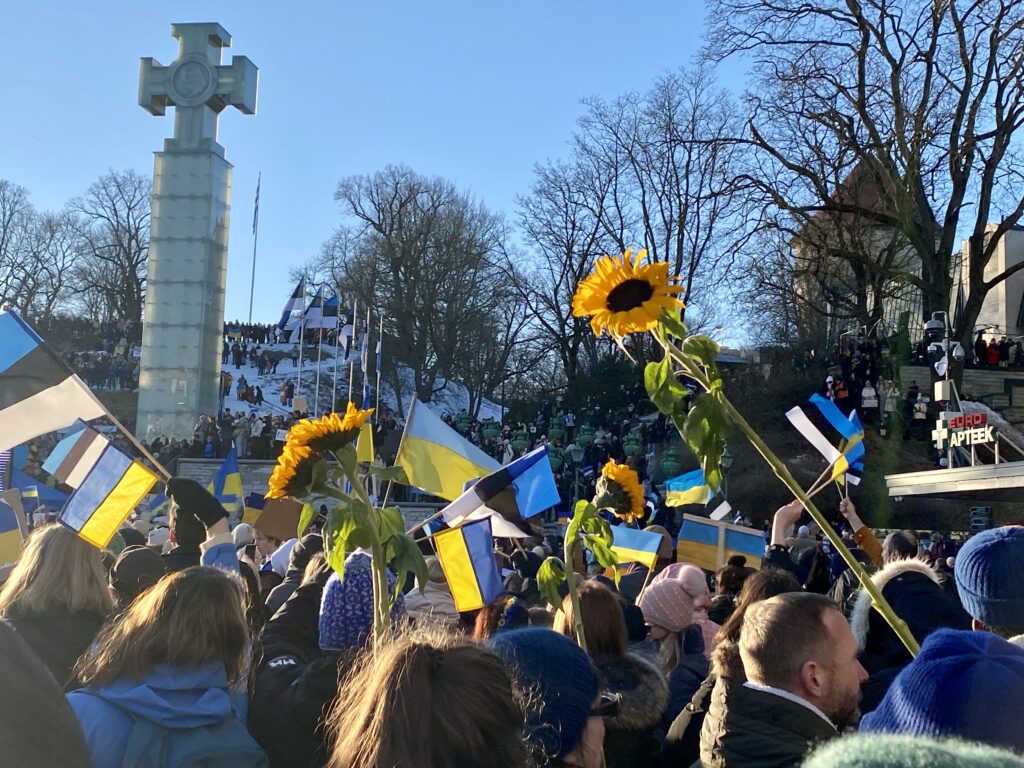In the wake of the Russian invasion of Ukraine, Estonian World brings you the latest reactions from Estonia – one of the few NATO member states that is bordering with Russia. These are the updates from February, March and April. The updates for May are in a separate article.
30 April 2022 – Ukrainians can’t find rental apartments in Tallinn
According to Delfi, it’s all but impossible to find an affordable rental apartment in Tallinn and the real estate brokers are predicting the prices will continue to rise. According to the CEO of SPC Real Estate, Konstantin Bereznyak, the demand for rental apartments is high and one of the reasons is that a lot of people have arrived in the Estonian capital from Ukraine. “Almost every day we can notice price increases in apartments and the lessening supply,” he told Delfi.
Ukrainian refugee Olga and her daughter are looking for a rental apartment for the second month in a row. “All my searches have failed so far,” she told the news portal. “A lot depends on the budget.” She also said that she’s following all rental websites and social media groups and it’s all been fruitless.
According to Bereznyak, it’s possible to rent a single room for €200-€250 a month, sometimes even for €300 – the price depends on the room’s state; the utilities are on top of that. The rental prices of a studio apartment in dormitory areas start from €400 a month and, again, the utilities are extra.
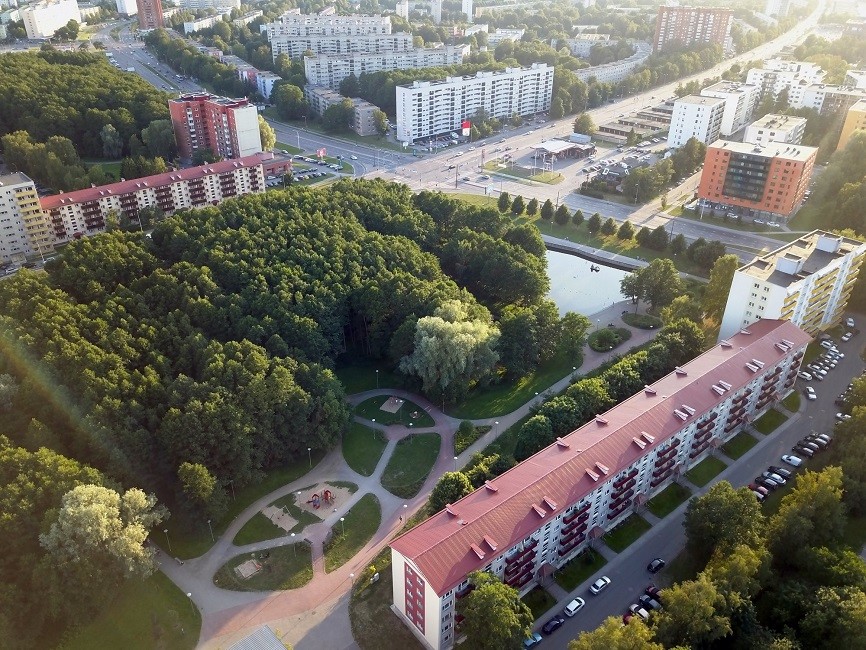
30 April 2022 – Estonian MEP: Moldova is in a very difficult situation because of the war
Urmas Paet, a member of the European Parliament from Estonia (Reform Party), says on Facebook that Moldova, the small western neighbour of Ukraine, is in a very difficult situation because of the Russian aggression against Ukraine and the European Union should support Moldova as much as it can. “There are 100,000 refugees in the country who mainly reside at the homes of Moldovans. At the same time, Moldova is completely energy-dependent on Russia that the latter uses in its interest. The EU needs to help Moldova to increase its energy security, ie create new connections, because otherwise Russia will have an important lever to influence Moldova,” Paet said.
The Estonian MEP added that the only Moldovan power plant is in Transnistria – an area controlled by Russia, and Moldova’s defence capability is tiny because the country hasn’t invested in its defence. “In addition, the EU needs to increase Moldova’s agricultural import quotas so that Moldova would have a better access to the EU market. That, too, would help decrease [Moldova’s] economic dependence on Russia. In addition, it’s important that the EU would respond positively to Moldova’s application to become a candidate state of the EU.”
29 April 2022 – Estonia’s PM: Russia should be pushed back from Ukraine
Russia should be expelled from Ukraine and “pushed back to Russia”, the Estonian prime minister Kaja Kallas told the BBC’s Newshour. She said that European security was at stake, adding “we all need to have this understanding that our neighbour’s problem today is our problem tomorrow”.
Kallas also said that keeping unity among the Western countries will become more difficult as the war goes on.
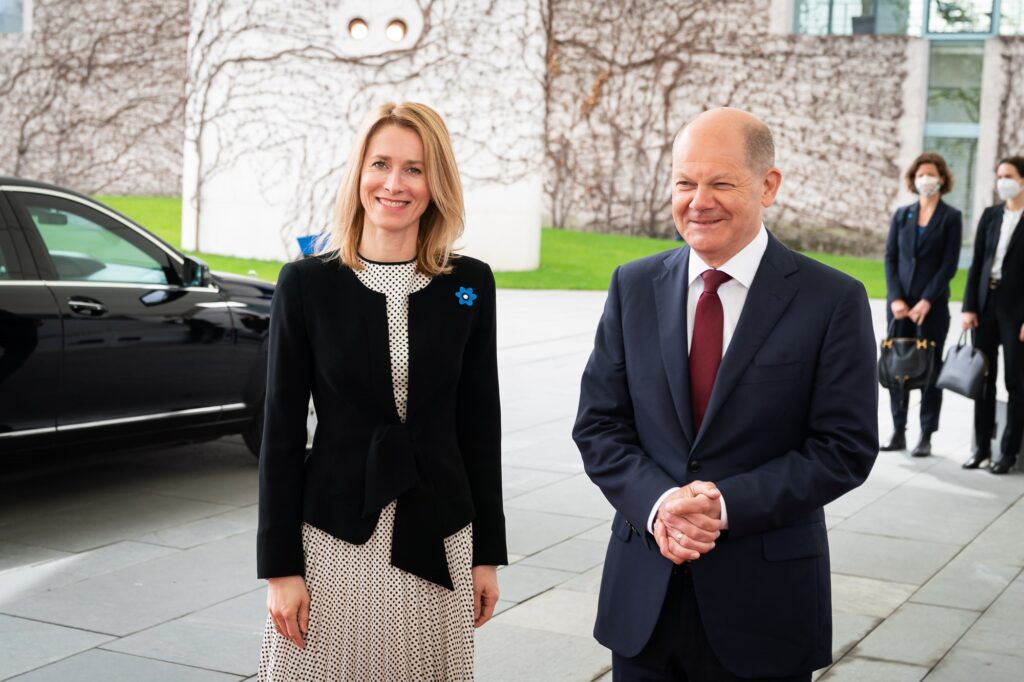
29 April 2022 – Estonia ready to supply Ukraine with additional weapons
The Estonian defence minister, Kalle Laanet, who visited Ukraine yesterday, said Estonia was “ready to supply Ukraine with additional heavy weapons and to organise the training of the Ukrainian Defence Forces in the use of Western weapons”. While Laanet was in Kyiv to meet with his Ukrainian counterpart, Oleksiy Reznikov, the city was attacked by two Russian missiles that hit civilian targets – although no one was injured.
To date, Estonia has provided €230 million in military assistance to Ukraine. The aid includes Javelin anti-tank missiles, 122-mm howitzers, anti-tank mines and cannons, light weaponry, various ammunition, vehicles, fuel, communications equipment, medical supplies, personal protection gear and military food rations.
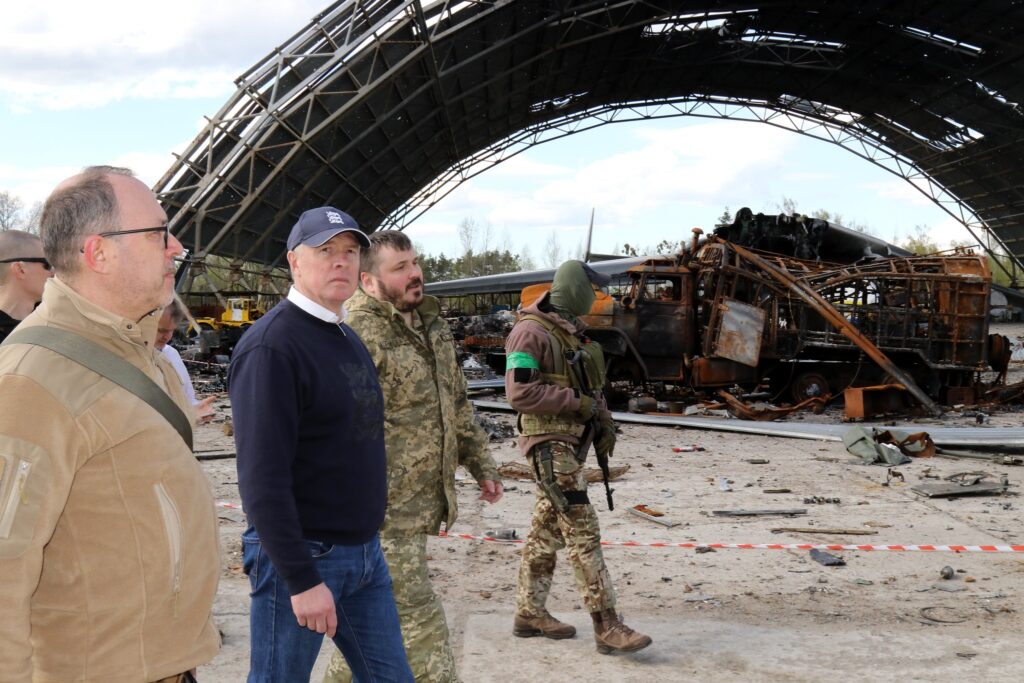
29 April 2022 – The Bank of Estonia: The war has so far had a modest impact on the lending market in Estonia
Russia’s invasion of Ukraine caused Estonian companies and households to be somewhat more cautious in their borrowing, especially in the first weeks of the war. But demand for credit has largely recovered since. Although some banks have become more wary in their lending, access to loans remains good and growth in credit is quite fast, the central bank of Estonia said today.
Demand for housing loans dropped for a time at the end of February and the start of March as purchase decisions were postponed after the war started, but it has since recovered.
28 April 2022 – Foreign tourists afraid to come to the Baltics
According to Martin Gauss, the CEO of Air Baltic, Latvia’s flag carrier and the Baltics’ largest airline, the people of Estonia, Latvia and Lithuania want to travel a lot – now that most coronavirus restrictions have been lifted; however, foreign tourists don’t want to come to the Baltics because they’re afraid it’s unsafe.
Gauss told the Estonian Public Broadcasting that the airline’s bookings are on the rise, but mainly because of people flying out, not the incoming visitors. “There’s still a few of them as they see the Baltics as periphery and, especially in the Western countries, people think there’s a big threat of war here,” Gauss said.
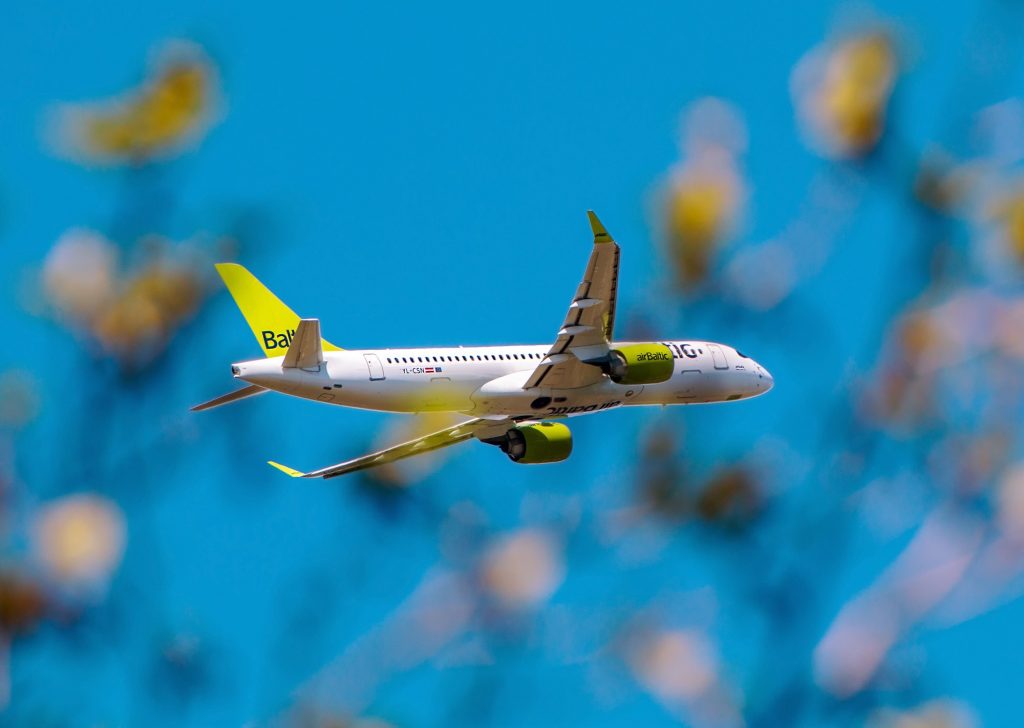
28 April 2022 – The EU has given Estonia €9 million to spend on war refugees
Most of the money that Estonia is spending on Ukrainian war refugees comes from the country’s taxpayers – in the additional budget, the government is asking for €243 million to cover the primary expenses related to the refugees. The European Commission has so far given Estonia €9 million to spend on helping the war refugees.
Since the Russian unprovoked war in Ukraine started on 24 February, 33,927 Ukrainian refugees have come to Estonia and almost two thirds of them have requested temporary protection.
28 April 2022 – The Odessa Classics music festival to take place in Estonia
Estonia will from 31 May to 3 June host the 2022 Odessa Classics music festival that was originally due to take place in the namesake Ukrainian city in early June – but was postponed in the wake of the Russian war against Ukraine.

27 April 2022 – Reelika Virunurm: The true cost of Germany’s stance on Russia
Estonian World’s long-time contributor Reelika Virunurm considers Germany her second home but writes in an opinion article that she is severely disappointed in the current highest-ranking German politicians and their unwillingness to act decisively in dealings with Russia, an unwillingness which has consequences for Ukraine, Estonia and all of Europe.
27 April 2022 – Mini-books on human rights in Ukrainian
As part of a collaboration project, “Mini-books for children by Baltic authors”, authors and illustrators from Estonia, Latvia and Lithuania have created books that are aimed at readers aged 6-10 and deal with human rights issues. The foldable books that fit on A4 paper have now also been translated into Ukrainian and can be downloaded free of charge from www.tinybooks.eu.
27 April 2022 – The defence officials of forty countries discuss helping Ukraine
The defence officials of forty countries – including Estonia’s defence minister Kalle Laanet and the chief of the Estonian Defence Forces, Lieutenant General Martin Herem – gathered at the Ramstein Air Force Base in Germany yesterday to discuss giving military aid to Ukraine in short and longer term. The meeting took place at the initiative of the US defence secretary, Lloyd Austin, and the Ukrainian defence minister, Oleksy Reznikov, gave an update of the events in the battlegrounds and Ukraine’s needs.
The Estonian defence minister, Kalle Laanet, said the next weeks will be decisive in Ukraine and it’s also important from the European perspective. “It’s very positive that the representatives of the countries that participated in the meeting share this view and they’re ready to give more aid to Ukraine, including heavy artillery and Western weapons systems,” he said in a statement. “Estonia will continue aiding Ukraine with weaponry and gear, but we’re also ready to give additional training in the situation where Ukraine is starting to use more and more Western weapons systems.”
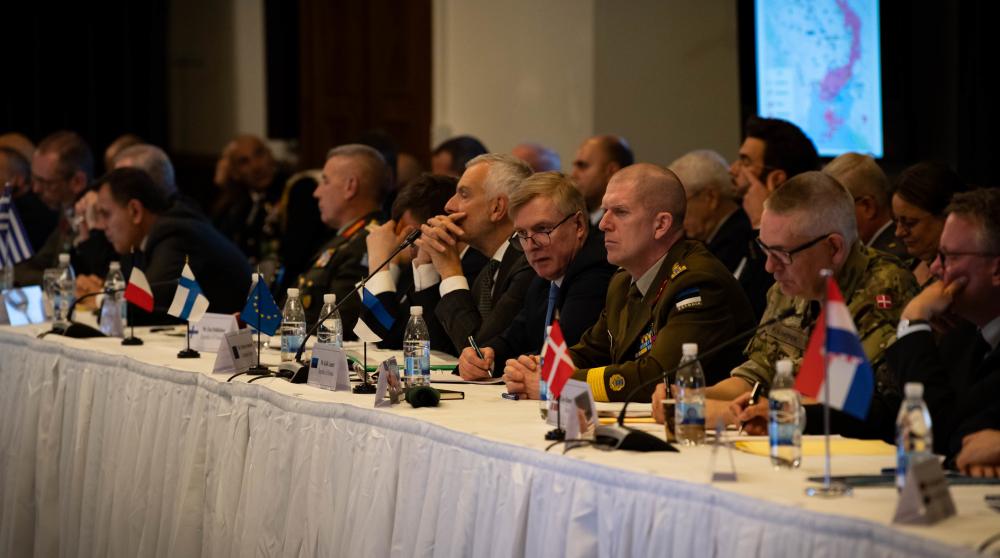
24 April 2022 – FM: Estonia takes relations with Russia to the bare minimum
Because of the Russian unprovoked aggression against Ukraine, Estonia has decided to take its relations with Russia to the bare minimum, the country’s foreign minister, Eva-Maria Liimets, says in an op-ed in Eesti Päevaleht. “The Russian war in Ukraine has changed the security and sense of danger of not only our neighbours, but the entire Europe and world. Russia has trampled on all international treaties that were supposed to guarantee peace and security. That’s why Estonia can’t continue communicating with Russia in an ordinary manner and we’ve decided to take all the contacts to the bare minimum.”
“The relations between Estonia and Russia will never be the same as they were before 24 February,” the foreign minister added, referring to the date when the Russian aggression against Ukraine started. “Such an attack against a country developed in the spirit of freedom and democracy is also an attack against these values that Estonia and Europe carries. The political and economic relations between Russia and Estonia and other Western countries need to be permanently revalued.”
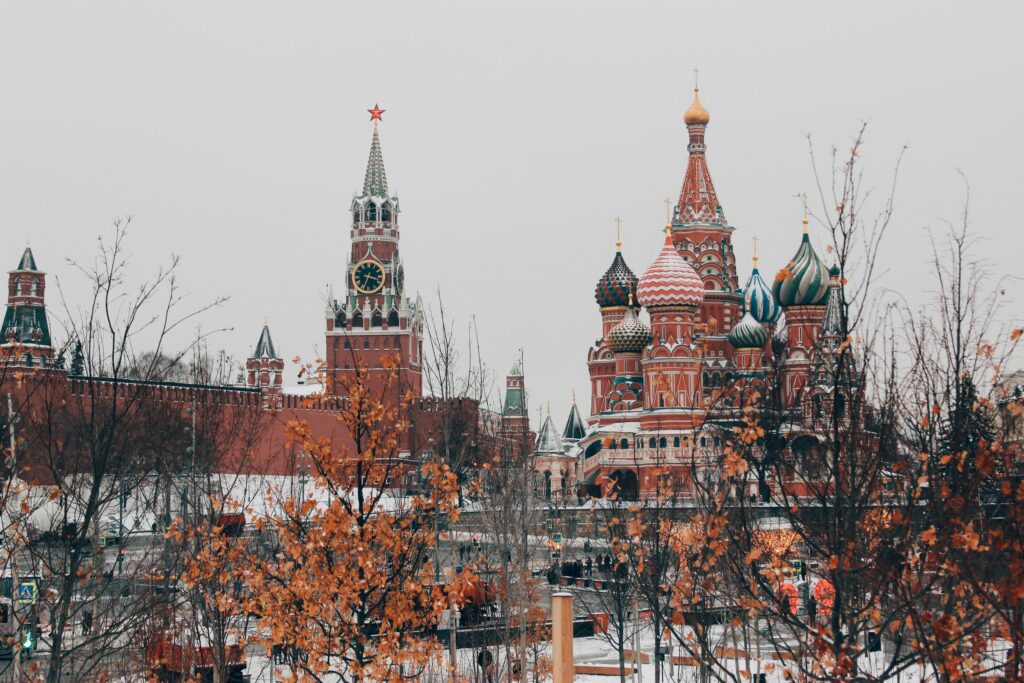
22 April 2022 – Estonia’s foreign ministry sends aid to bombing victims
The Estonian foreign ministry yesterday sent its first humanitarian aid shipment to Ukraine’s bombing victims, worth €200,000. The shipment mostly includes cooling gels, splints and bandages for victims of bombing; it also has 18 patient monitors, six ventilators, a portable ultrasound machine and mobile phlebotomy beds and equipment for providing first aid on the ground.
22 April 2022 – Artists justifying Russian aggression no longer welcome in Estonia
The government yesterday gave its support to the principle of not allowing into Estonia any Russian or Belarusian artists or cultural figures who justify Russian aggression and the actions of the Russian dictator, Vladimir Putin.
“Everything is black and white in war,” the country’s prime minister, Kaja Kallas, said in a statement. “There is one country that has attacked another. In this case, Putin’s regime is killing innocent civilians in Ukraine. Anyone who justifies this is on the wrong side of the black-and-white divide.”
“The vast majority of entrepreneurs, event organisers and local governments have a moral compass, but there are some who are still planning concerts by artists who seek to legitimise the war and the deaths it is inflicting. We therefore decided today, as government, that such artists will not be allowed into Estonia. The message we are sending out is clear and unambiguous: anyone singing Putin’s praises is no longer welcome in our country and their concerts shall not take place here.”
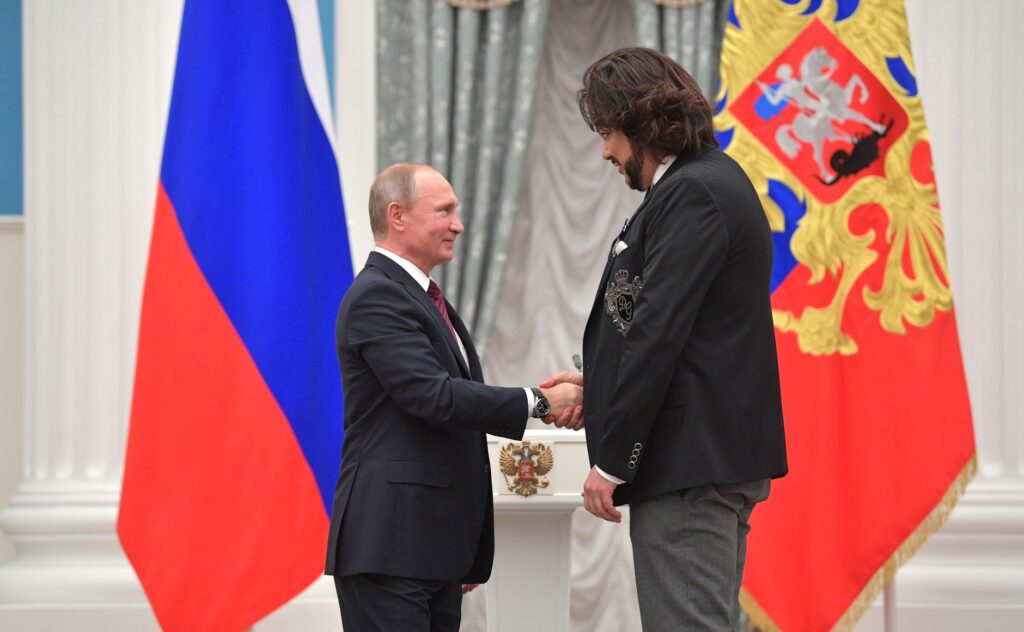
22 April 2022 – Over 32,000 Ukrainian refugees are currently in Estonia
As of 21 April, 32,282 Ukrainian war refugees were in Estonia. Over 4,500 of them were accommodated by the state, including 1,657 children. Overall, 5,085,360 people have escaped the war-torn Ukraine and are residing outside of their country.
21 April 2022 – Estonia offers free e-residency to Ukrainian entrepreneurs
The Estonian e-residency programme, together with a group of business service providers, will compensate the relevant state fees to all Ukrainian citizens who apply for e-residency and establish a private limited company in Estonia over the course of this year.
21 April 2022 – Russia closes Estonia’s consular representations in St Petersburg and Pskov
The Russian foreign ministry today summoned the Estonian ambassador to Russia, Margus Laidre, to notify him of the closing of Estonia’s consular representations in St Petersburg and Pskov and declaring all their staff persona non grata in Russia.
The Estonian foreign minister, Eva-Maria Liimets, said in a statement that Russia’s decision to declare the staff of the embassy as undesirable and close Estonia’s consular representations is a “regrettable step; however, it was not completely unexpected for Estonia”. “Russia’s move is linked to Estonia’s 5 April decision to declare 14 members of the Russian embassy staff persona non grata and close the consular representations in Narva and Tartu,” she noted.
NATO and European Union member states have expelled 480 Russian embassy staff from their countries since 24 February.
21 April 2022 – Estonian volunteers help out in Ukraine
Estonian entrepreneur and volunteer Toomas Roolaid and Estonian World writer Reelika Virunurm share their personal experience of driving across Europe and delivering medicine, food and needed supplies to Ukraine.
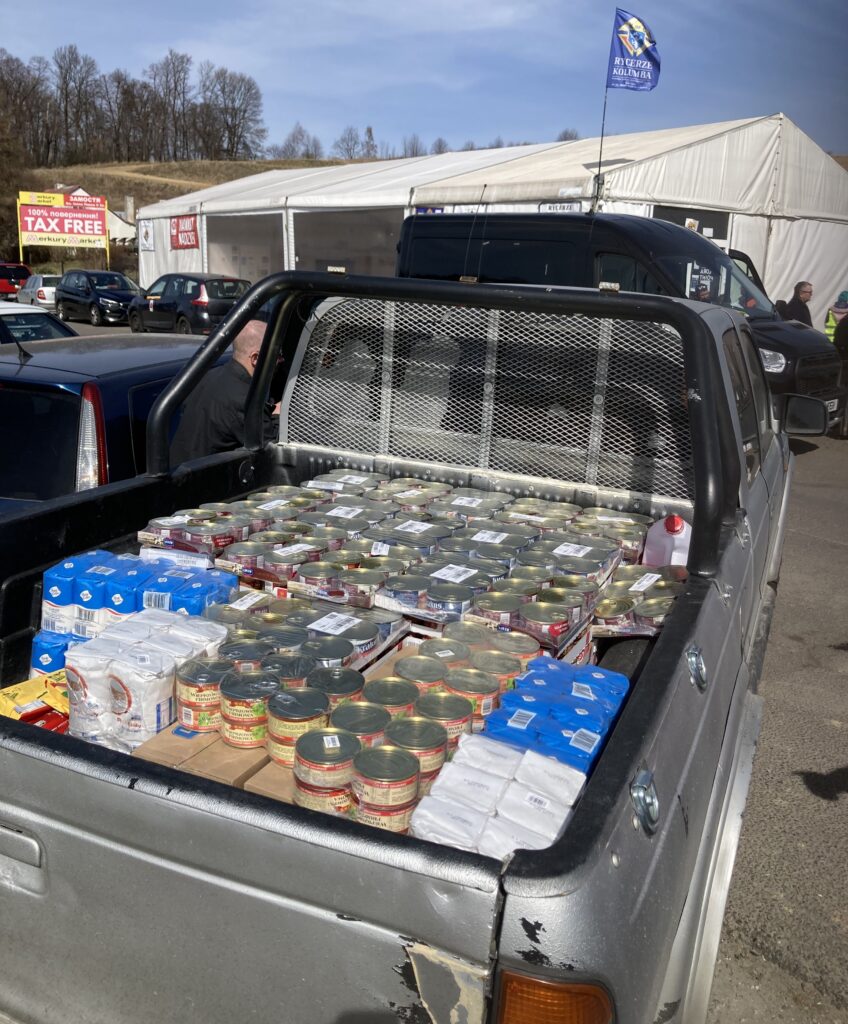
21 April 2022 – Estonian parliament: Russia’s war in Ukraine is a genocide
The Estonian parliament today adopted a statement on Russia’s war against Ukraine, calling the invasion a “genocide”.
21 April 2022 – Estonian parliament bans symbols supporting acts of aggression by foreign states
Prompted by Russia’s attack against Ukraine, the Estonian parliament today passed an amendment to the existing law, making it a crime to join the aggression committed by a foreign state. The law now also bans exhibition of symbols that relate to an act of aggression, such as symbols supporting the Russian invasion of Ukraine.
Joining the armed forces of a foreign state committing an act of aggression or any other armed unit participating in an act of aggression committed by a foreign state, participation in the commission of or preparing an act of aggression by a foreign state as well as knowingly and directly, including financially supporting an act of aggression by a foreign state is punishable as a criminal offence. Under the new law, such an activity is punishable by imprisonment of up to five years.
The law now also states that it is not allowed to publicly exhibit symbols connected with the commission of an act of aggression, genocide, a crime against humanity or a war crime in a way that expresses support to or justifies such activities. A violation is punishable by a fine of up to €1,200 or detention. If such an act is committed by a company or an organisation, it is punishable by a fine of up to €32,000.
Sixty-nine members of the 101-seat Estonian parliament voted in favour of the new amendment, three were against.
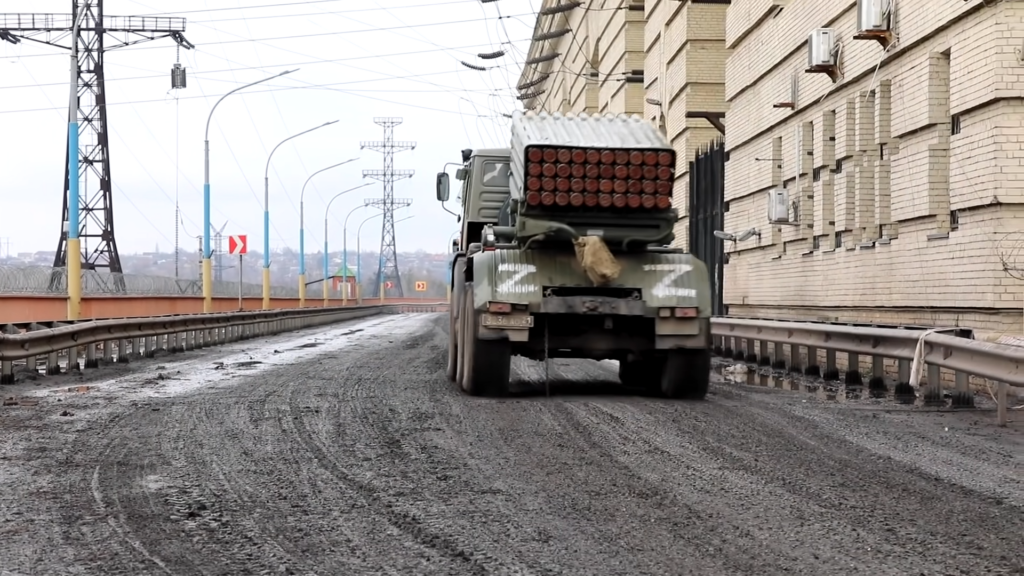
21 April 2022 – Tallinn to create a Ukraine Square in city centre
The Tallinn city government is planning to create a Ukraine Square in Lembitu Park in the centre of Tallinn. “Like many other cities, Tallinn considers it very important to express support to Ukraine, a country currently at war for all of us. We would like to give the name of Ukraine to a place of great symbolic value in the centre of Tallinn. When choosing the location, attention was paid to the relationships wrought with the surrounding urban space and the namescape of the area,” Madle Lippus, a deputy mayor of Tallinn, said in a statement.
According to the city government, Lembitu Park has a symbolic value because the historic buildings around the park were almost completely destroyed in the March 1944 bombing raids on Tallinn by the Soviet air force.
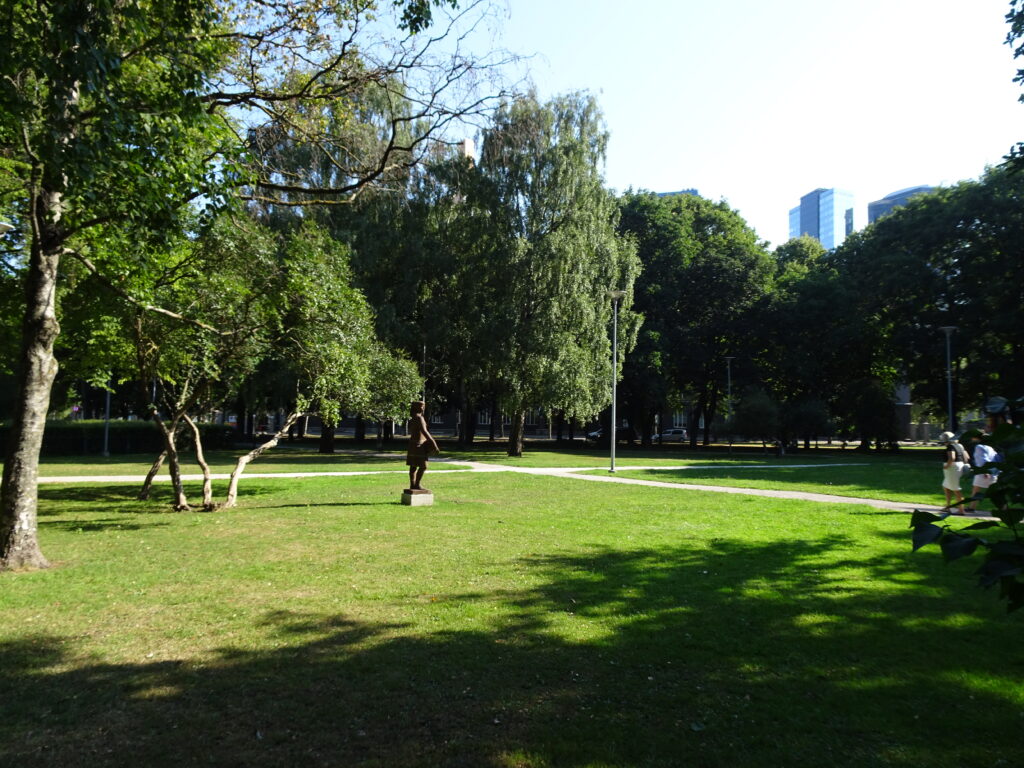
19 April 2022 – Per GDP, Estonia has donated far more to Ukraine than any other nation
According to the Kiel Institute for the World Economy, per GDP, Estonia has donated far more to Ukraine than any other nation, including the US, the UK or other larger European economies. All in all, Estonia has provided aid to Ukraine worth around close to 0.8 per cent of its GDP. Estonia is followed by Poland (0.17% of its GDP), Lithuania (0.06), Slovakia (0.05), Sweden (0.045) and the US.
18 April 2022 – Newspaper: War refugees arriving at Tallinn bus station left without help
Newspaper Postimees reports that due to mismanagement by the state, many Ukrainian war refugees arriving at the Tallinn central bus station are trapped and the help that should come from the Estonian government is completely insufficient. “There’s a phone number glued on the wall for the refugees and when called to the number, people will be diverted to a place of accommodation; however, most people who arrive here don’t have enough credit on their phones to make the call,” the newspaper says.
According to the daily, most Ukrainian war refugees arrive in Estonia on their own, mostly by the bus, with their last savings in their pockets. They’re not only coming from the Baltic states, but also through Russia. On Sunday, for example, completely full buses with refugees arrived in Tallinn from St Petersburg. “At the bus station, a chaos awaits them. The benches are full of people who haven’t gotten anything to eat, drink or use the bathroom because the cafes and kiosks are closed and the bus station’s restroom isn’t free,” the newspaper says.
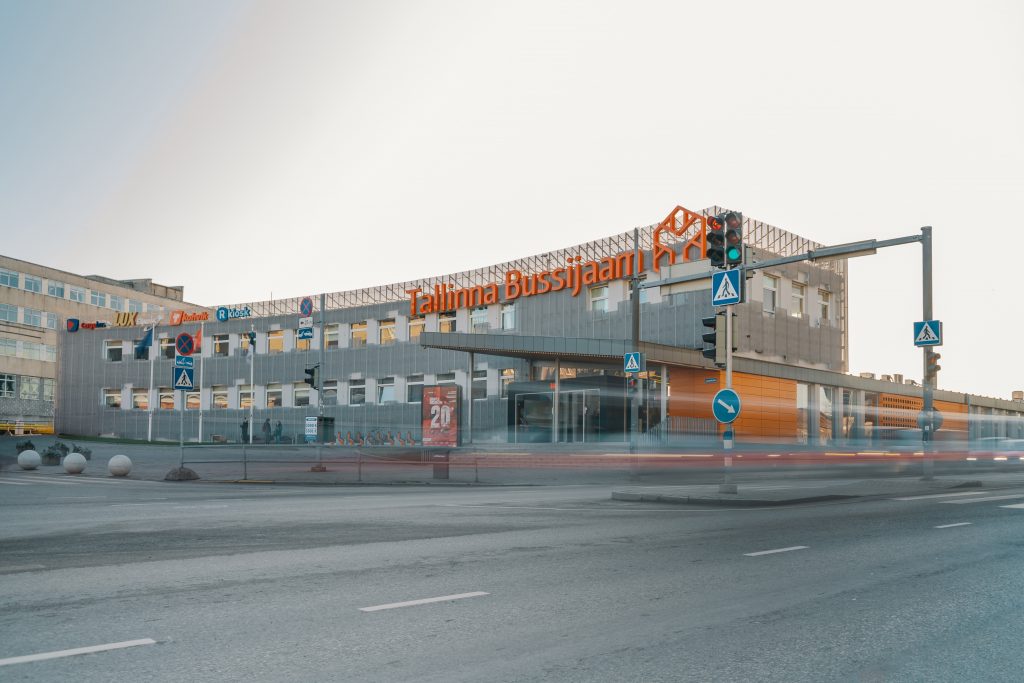
14 April 2022 – President Karis: Ukraine’s children are playing on debris
The Estonian president, Alar Karis, who recently visited Kyiv and its suburbs, said in an interview with a programme on the Estonian Public Broadcasting that the picture he saw was one he wouldn’t rather have seen. “The picture is horrid: houses demolished, some people are trying to live in these houses, houses that can collapse any minute, at the same time, they’re looking for corpses in these houses, children are playing on debris,” Karis said.
The president also met with his Ukrainian counterpart, Volodymyr Zelensky. The purpose of the meeting was to find out, what Ukraine needs in terms of military and humanitarian aid so that the war would end quickly. “Diplomacy hasn’t taken us much forward. There’s only the option to support Ukraine so it would end the war as quickly as possible,” Karis noted.
14 April 2022 – Tallinn-based NATO cyber defence centre raises the Ukrainian flag as a sign of solidarity
The NATO Cooperative Cyber Defence Centre of Excellence (CCDCOE), based in Tallinn, has raised the Ukrainian flag in a sign of solidarity and said it welcomed the country on the road to membership of the organisation.
The Ukrainian ambassador in Estonia, Mariana Betsa, said at the ceremony that, in the current war, her country is a “testing ground for the use of cyber-tools” and has the “unique practical experience” in neutralising cyberattacks that may be useful to partner countries. “We continue to build national cybersecurity capacity, strengthen and enhance our legislation. We strongly advocate the bringing to justice of those who intentionally organise and carry out cyber-attacks. We believe that existing international law applies in cyberspace,” she said.
Ukrainian representatives will also participate in the centre’s cyber exercise, Locked Shields, one of the most complex of its kind, due to start next week in Tallinn. The NATO Cooperative Cyber Defence Centre of Excellence was established in Tallinn in May 2008, following a large-scale Russia-originated cyber-attack against Estonia.
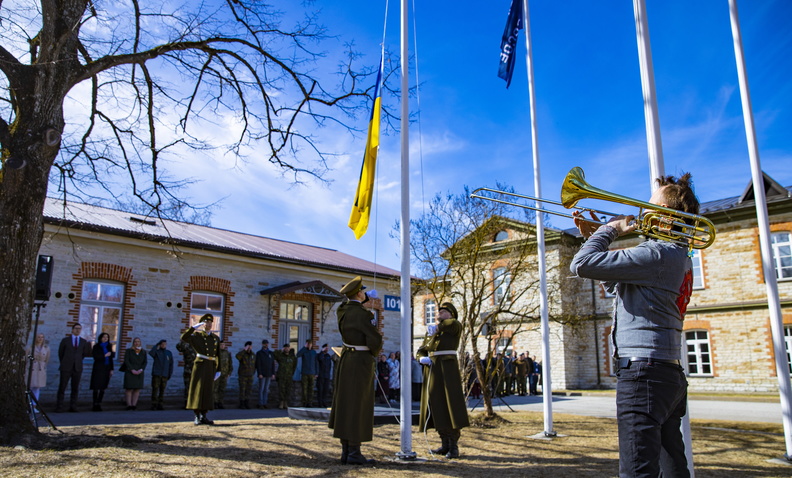
14 April 2022 – Russian citizens eager to obtain Estonian citizenship
Since the start of Russia’s unprovoked war against Ukraine, the Estonian authorities have received three times more citizenship applications from Russian citizens than last year during the same period. Since 24 February, 113 Russian citizens have applied for Estonian citizenship.
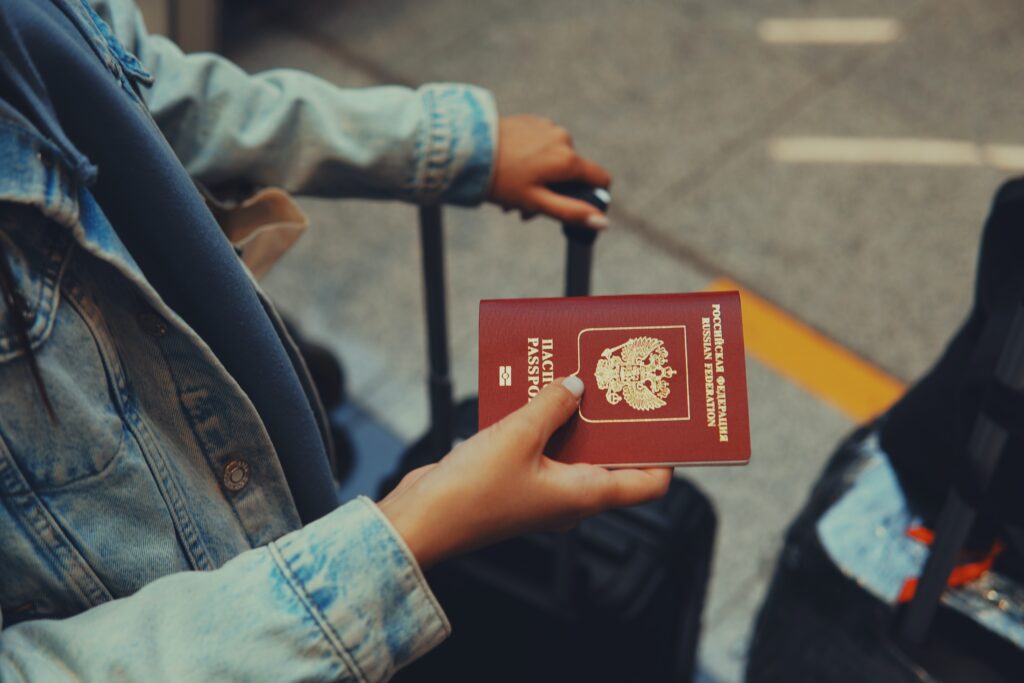
13 April 2022 – US columnist: If Putin isn’t stopped in Ukraine, the Baltics are likely next
Michael Gerson, an American columnist, writes in his opinion article in the Washington Post that if the Russian dictator, Vladimir Putin, is attempting to reconstruct the Russian sphere of influence in Europe, “his success in Ukraine would pave the way for future horrors. The logic that led to Russian aggression in Georgia and Ukraine – no NATO in the Russian sphere – would almost certainly lead toward the Baltics.”
“The lesson? Ukraine, with aggressive help from NATO, must defeat Russian forces, or the United States might soon face the question: Do we really fight for Lithuania? Though we are obligated, the decision and task would not be easy. Helping draw a NATO redline at Ukraine could help the United States preserve itself from impossible choices of the future.”
13 April 2022 – Estonia’s PM: Russia’s war against Ukraine displays clear signs of genocide
The Estonian prime minister, Kaja Kallas, said in a statement, following the Ukrainian president Volodymyr Zelensky’s video address to the Estonian parliament today, that “Russian leaders have demonstrated their will to destroy the Ukrainian state and people in both words and deeds”. “Russia’s war against Ukraine displays clear signs of genocide. At the same time, we have not yet seen the full extent of the crimes committed by Kremlin,” she noted.
Kallas added that Estonia supported the prosecutor general of Ukraine and the International Criminal Court in investigating the Russian war crimes. “We also send our experts to support the investigation and gather evidence. Estonia will also gather evidence.”
13 April 2022 – Volodymyr Zelensky: Russia must not receive any money from European states or companies
The president of Ukraine, Volodymyr Zelensky, said in a video address to the Estonian parliament on 13 April that the European Union has no right to sponsor war – a reference to the fact that many EU member states still buy Russian energy, thus indirectly funding the Russian war against Ukraine; Estonian World publishes Zelensky’s speech in full, in a lightly edited format.
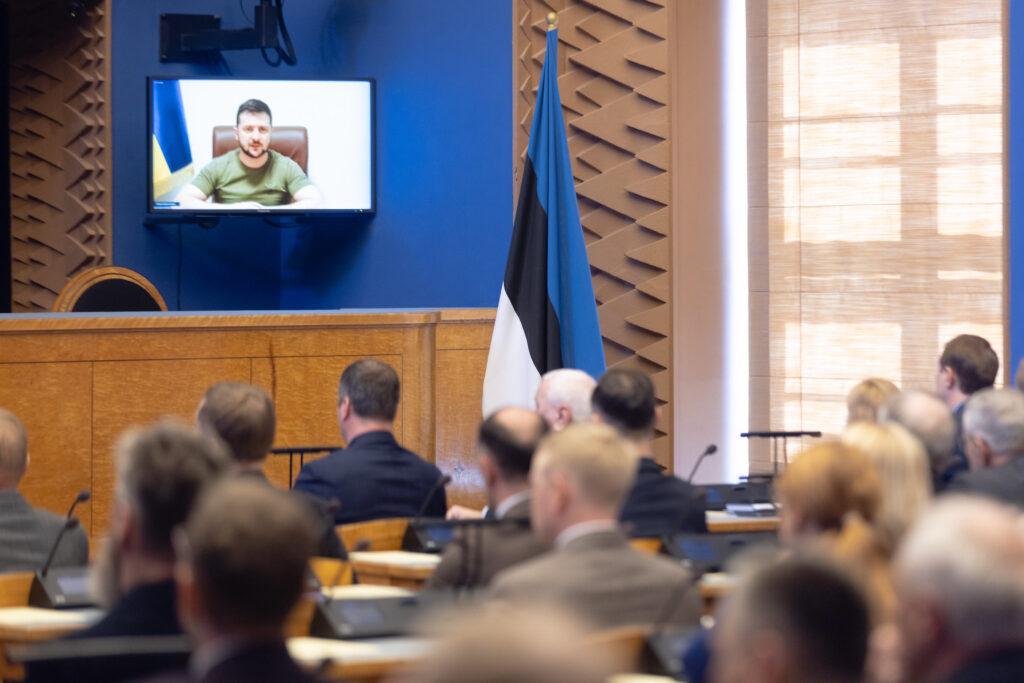
13 April 2022 – Women protest in front of the Russian embassy in Tallinn
Approximately twenty half-naked women gathered in front of the Russian embassy in Tallinn this morning to protest Russian soldiers’ abuses of women and children in Ukraine. “Russian soldiers are raping and murdering innocent women and children in Ukraine. People who support this war also support war crimes,” the protesters said.
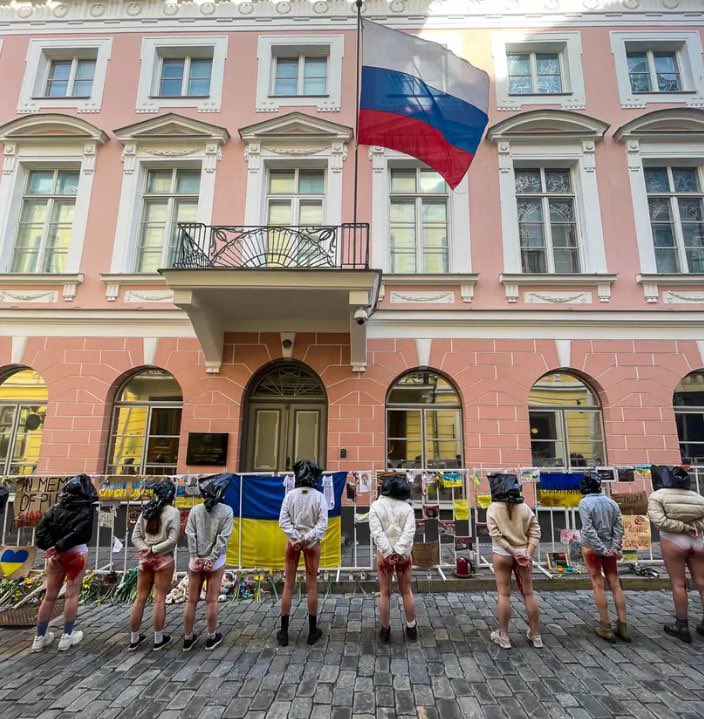
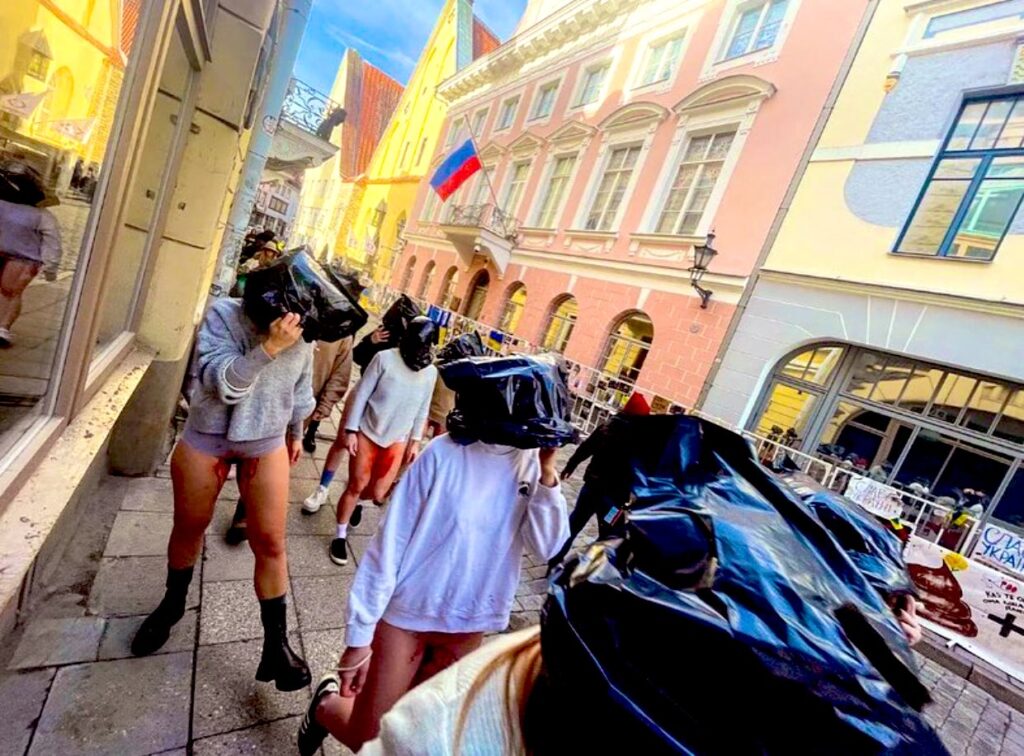
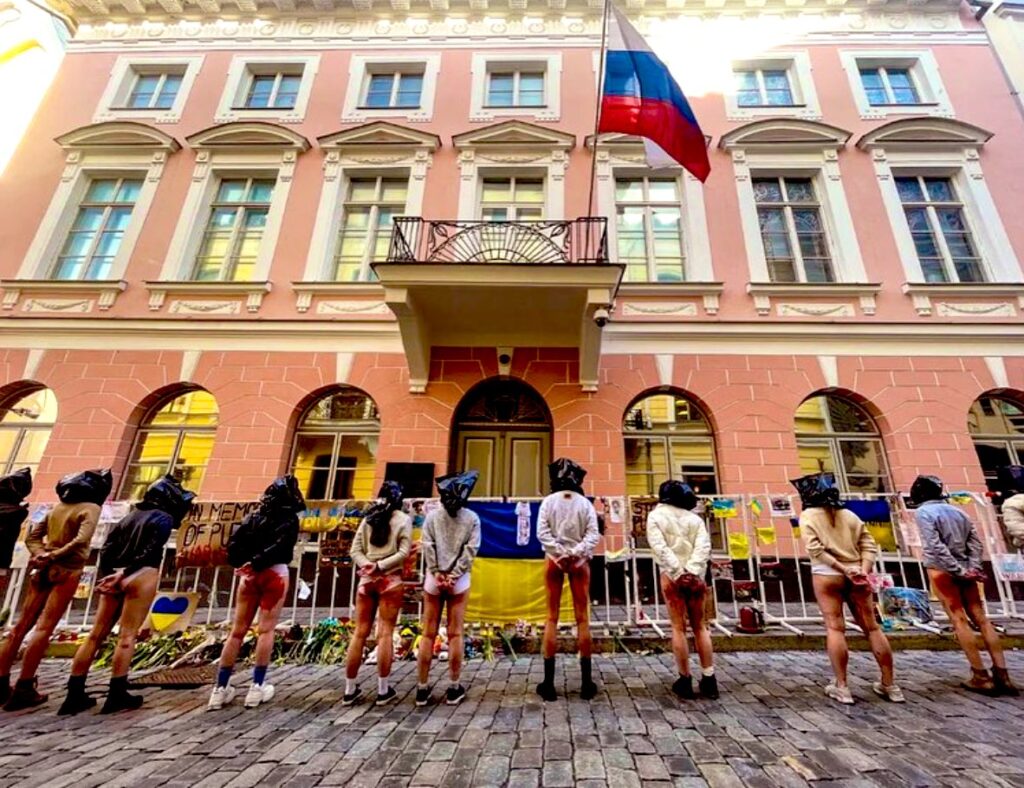
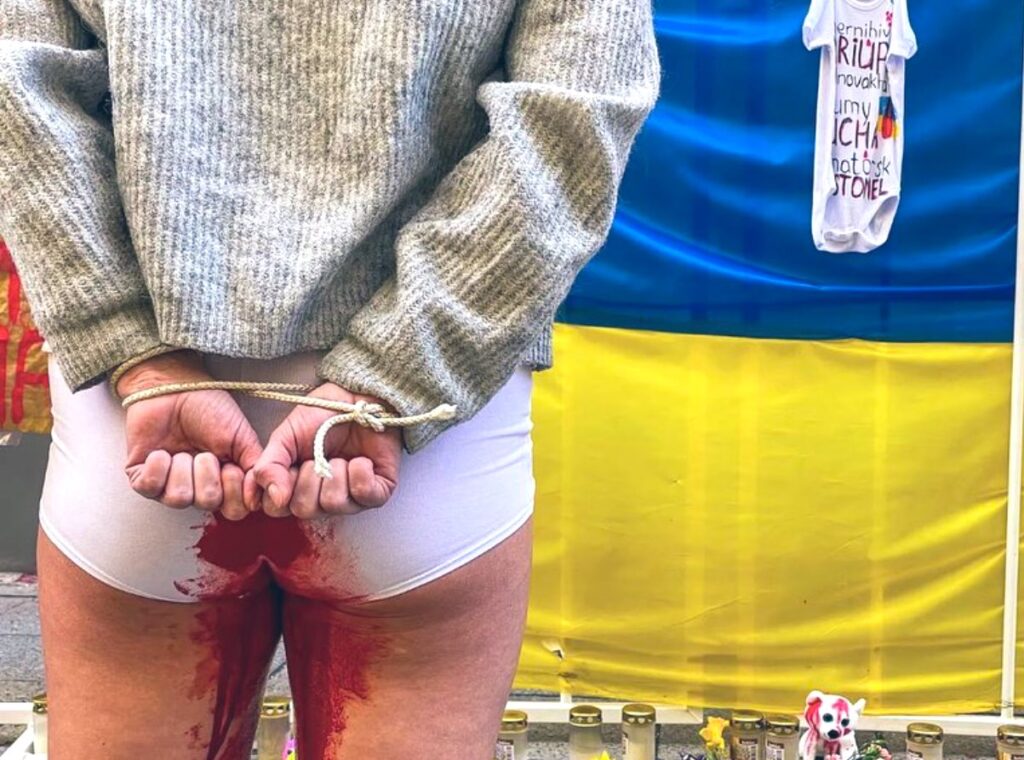
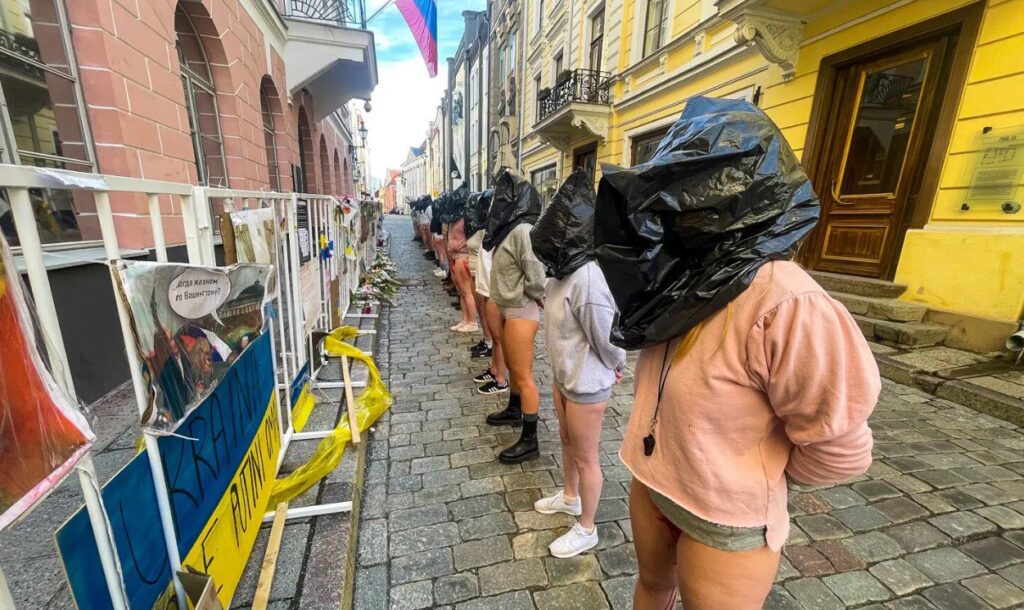
13 April 2022 – The presidents of Estonia, Latvia, Lithuania and Poland meet the Ukrainian president Zelensky in Kyiv
The Estonian president, Alar Karis, is visiting Kyiv today with his Latvian, Lithuanian and Polish colleagues – Egils Levits, Gitanas Nausėda and Andrzej Duda, respectively. According to the Karis’s office, the presidents are “expressing support” to the people of Ukraine, who are defending their country against Russian aggression.
The four heads of state will have a meeting with the Ukrainian president Volodymyr Zelensky. The meeting will focus on ways of assisting civilians and those defending the country. Investigations into war crimes will also be discussed, with the aim being to bring those responsible for barbaric acts to justice.
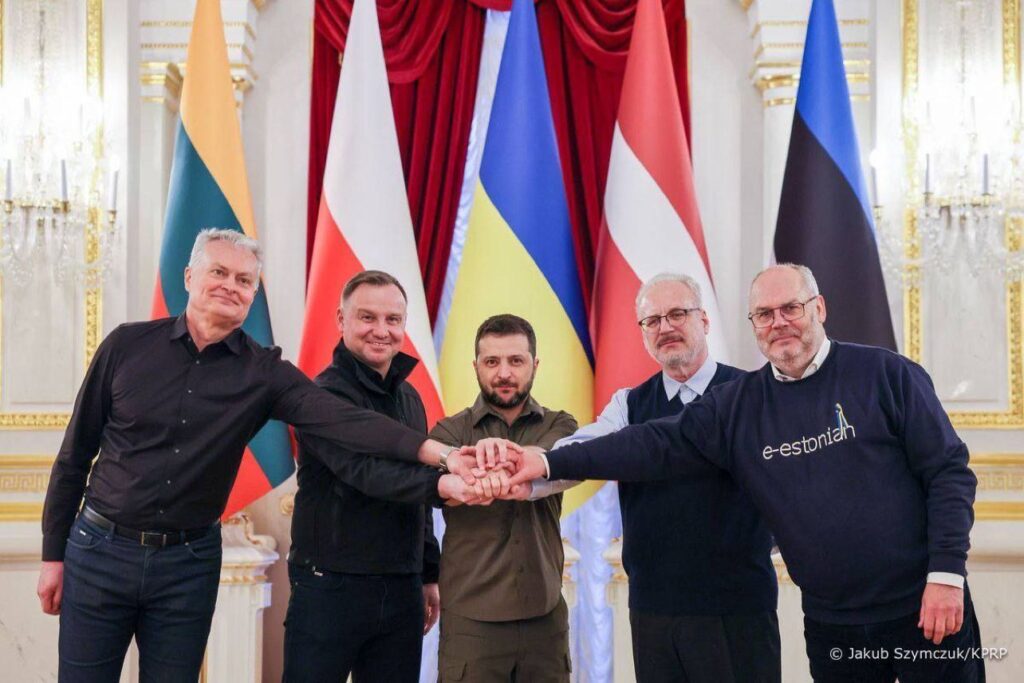
10 April 2022 – Estonian startup opens e-classrooms for Ukrainian refugees
Following Russia’s invasion of Ukraine, Estonian education entrepreneur Maria Rahamägi is using her ed-tech platform to bring Ukrainian students and teachers some semblance of normalcy, by opening online classrooms where they can find solace in community, continue to forge their own identities and reassert their right to self-determination.
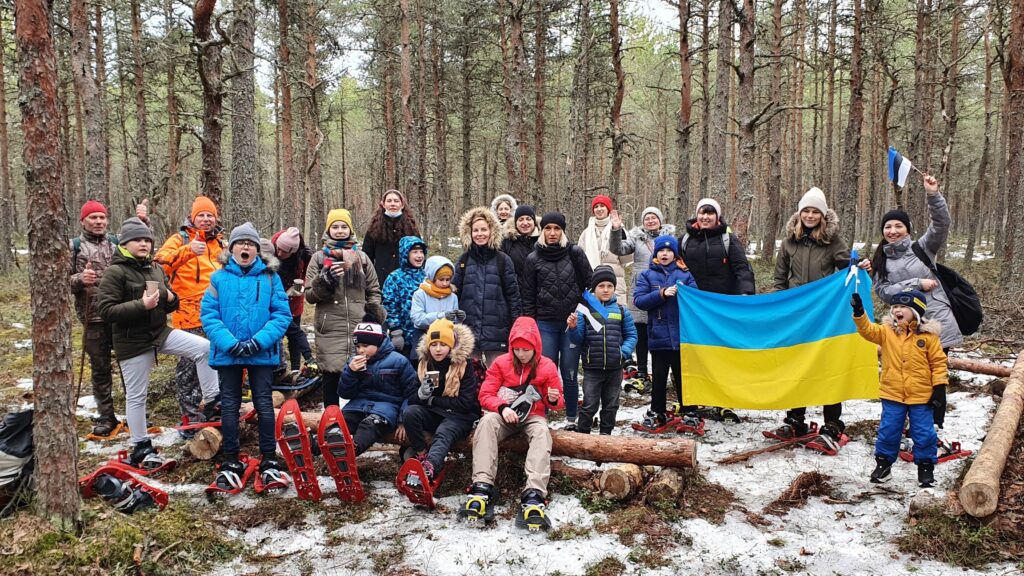
10 April 2022 – Estonia has accepted 28,961 Ukrainian war refugees
As of yesterday, Estonia has since 27 February accepted 28,961 war refugees from Ukraine. Only on Saturday, 490 refugees arrived in Estonia, 129 of them children. Of the 490 refugees, 230 told the Estonian Police and Border Guard Board that they won’t remain in the country. As of Saturday, the Estonian police had registered 18,530 applications for the temporary protection of war refugees.
10 April 2022 – Volunteers to offer free English courses to the Ukrainian refugees
A group of volunteer English teachers are to offer free intensive English courses to the Ukrainian war refugees. Any adult Ukrainian war refugee who has recently arrived in Estonia can attend. The registration starts in April and the courses commence at the beginning of May. People interested in the courses can find more information on the International Language Services website.
10 April 2022 – Video: Training to fight Russia – how a volunteer force is growing in Estonia
The Time magazine has posted a video on how the volunteers of the Estonian Defence League are training to be prepared in case of a Russian attack against the country.
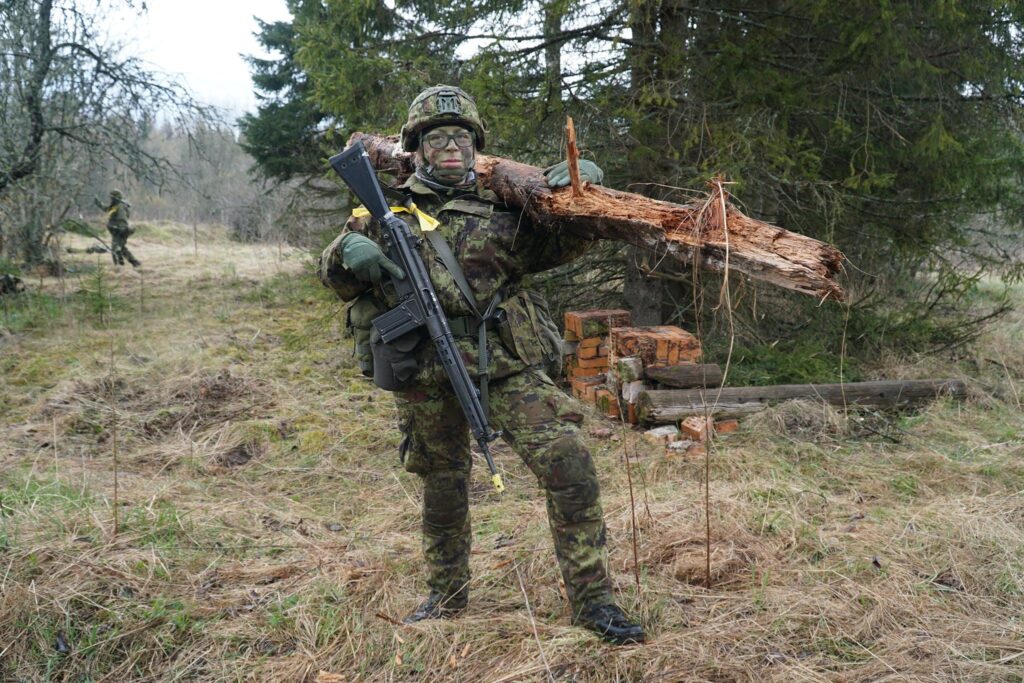
8 April 2022 – Defence ministry: Estonia’s goal is to double the allied presence
The chief of staff of the Estonian defence ministry, Kusti Salm, said that Estonia’s goal in the fall NATO summit is that the alliance double its presence in the country. Estonia’s wartime defence force would in that case grow to 50,000 servicemen and women.
“Our goal with the strengthened forces is to create a situation that would persuade Russia that any attack against NATO will fail from the very first moment,” Salm said, according to the Estonian Public Broadcasting. “We’re seeing that we can get to this goal if NATO can deploy a division-size army unit in every Baltic country in case of a war.”
8 April 2022 – Volodymyr Zelensky to address the Estonian parliament
The Ukrainian president, Volodymyr Zelensky, is to address the Estonian parliament, Riigikogu, on 13 April. Zelensky has since the start of the Russian invasion of Ukraine addressed the parliaments across Europe and North America, including the US Congress. Estonia was one of the first countries to send Ukraine a military aid, including the anti-tank Javelin missiles – and has so far contributed aid worth over €200 million.
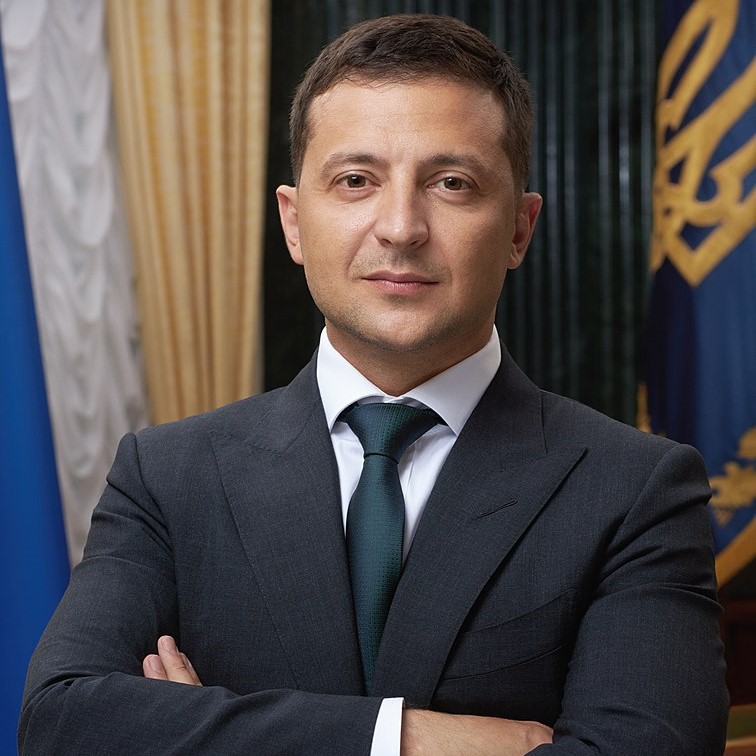
8 April 2022 – Narva man fined €500 for inciting hatred against Ukrainian refugees
A Narva man has been fined €500 for inciting hatred and calling for violence against the Ukrainian refugees on TikTok. A concerned citizen reported the man’s TikTok videos to the police, after which the officers got in touch with him, investigated his motives and explained the dangers of his actions.
8 April 2022 – Estonia and Finland to have a joint LNG terminal
The Estonian and Finnish governments have agreed to the joint leasing of a floating terminal for liquid natural gas (LNG) that will guarantee the supply of gas to both countries; the Estonian government has meanwhile decided “in principle” to cease all imports of Russian gas before the end of the year.
8 April 2022 – Ukrainian officer: Russia may want to show NATO “its place” in the Baltics
Ukrainian military expert, colonel Serhii Hrabsky, says in an interview with Eesti Päevaleht, an Estonian daily, that knowing Russia, one can’t rule out military operations. “The Baltics are a ‘tender underbelly’ where the Russians may get the temptation to show NATO its place. In Russian minds, you’re already on the other side of the Iron Curtain and the wish to restore the empire may lead to catastrophic consequences,” Hrabsky told the newspaper.
“In Russia, there’s a very strong imperialist and chauvinist firestorm. And what’s worst – a big part of the Russian society supports it. There is no point in thinking that the Russians don’t have the motivation, that some service members would refuse to wage war or that the mothers of the service members would oppose the war. It’s Russia – they can be naked, hungry, but they’re angry, and in that state, they don’t have another choice but to attack.”
Hrabsky points to military manuals that say that when the resistance is chaotic, an armoured column would move forward 25-30 kilometres (16-19 miles) a day. “Ukraine took its military to a greater preparedness a few weeks before the war and held many drills to strengthen the preparedness. Before the war, we had 400,000 men in operational reserve. But in the first days of the war, we took heavy hits – and, look at the map how much our military had to retreat during maneuvering. Anyone can look at the map and calculate on how quickly an armored column could reach Tallinn or the Baltic Sea from Ivangorod – using the moment of surprise.”
“This may not be liked by many, but the weakness of the Baltics is the lack of territorial depth, which makes organising maneuvering defence very difficult. You have to take into the account that you or the units of the allies that are posted with you aren’t morally ready for the heavy hits that come with the beginning of the war. The lack of territorial depth and the retreat that would probably come after the beginning of the war would make it difficult to stage wing and deceit maneuvers. In addition, in your conditions it would be very difficult to arrange logistics because it takes time, but the time factor is the most critical in your case.”
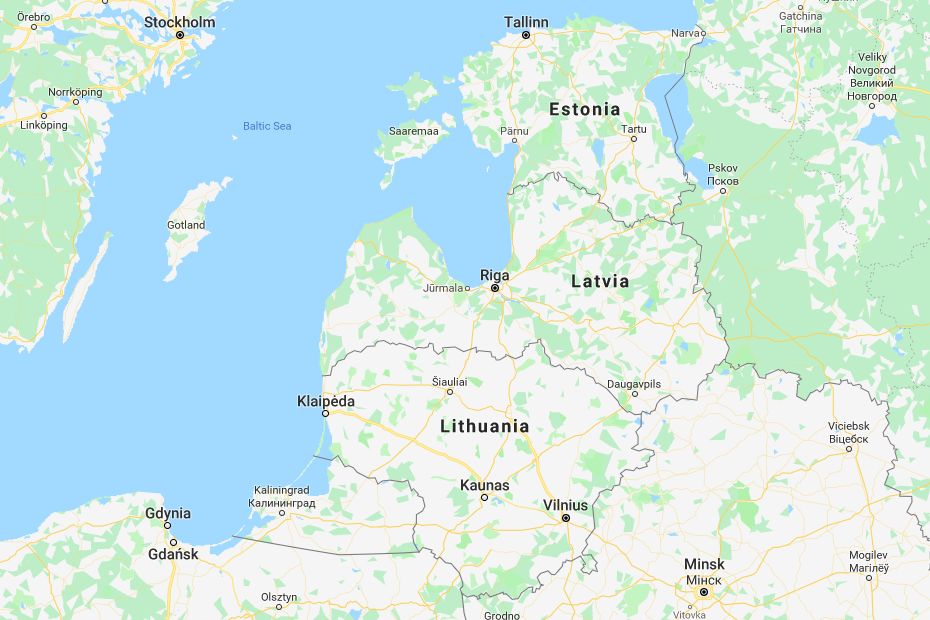
8 April 2022 – The EU adopts a fifth sanctions package
The European Union today adopted a fifth sanctions package against Russia, containing energy sanctions, new restrictions on transactions with crypto-assets, entry bans for ships flying the Russian flag, road transport bans for Russian and Belarusian companies, and additional export and new import bans. Russian companies are prohibited from taking part in public procurements in EU member states and Russia’s public entities are excluded from any financial support.
The sanctions list includes 216 individuals with close links to Russian authorities and 18 companies from the financial, military and transport sectors, including four major Russian banks. The latter will be excluded from the SWIFT system and banned from taking part in any financial transactions in the European Union.
7 April 2022 – Estonia stops issuing visas and work permits to Russian citizens
Estonia is stopping issuing new visas and work permits to Russian and Belarusian citizens. The visas and work permits already issued will still be valid and their holders can extend their validity.
7 April 2022 – Estonia’s FM: Suspending Russia’s membership in the UN Human Rights Council is the only conceivable one
According to Eva-Maria Liimets, Estonia’s foreign minister, today’s UN General Assembly decision to suspend Russia’s membership in the UN Human Rights Council is the only conceivable one. “The war crimes, crimes against humanity and endless human suffering caused by Russia in Ukraine leave no other choice. Russia’s disturbing actions of torturing and killing civilians, including women and children, and their complete disregard for international humanitarian law cannot go without international condemnation,” she said.
6 April 2022 – US general: NATO needs more bases in Eastern Europe
General Mark Milley, the chairman of the US joint chiefs of staff, said that NATO should build more permanent bases in Eastern Europe, calling for the outposts established in Poland, Romania and the Baltics. Milley said the new permanent bases would be paid for the host countries who are willing to increase their defence spending after the Russian aggression against Ukraine.
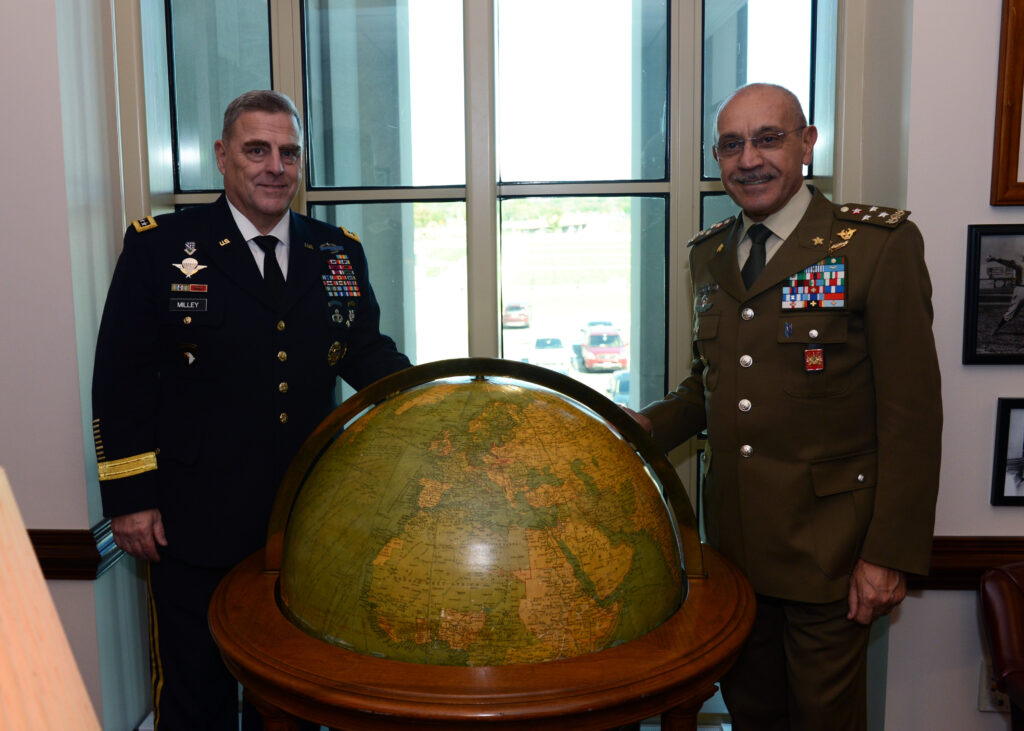
6 April 2022 – Tallinn opens school for children of war refugees from Ukraine
Tallinn City Government announced it will open a school for children of war refugees from Ukraine on 11 April. The school is a branch of Tallinn Lilleküla Gymnasium and will be in a building belonging to Tallinn University.
Until the end of the current academic year, the new school will operate as a day school, where children will participate in recreational and other supervised activities, but there will be no classical education for the time being. “This form of education will give the children a chance to adapt to the new environment and, given the situation, they will certainly need time to recover,” Vadim Belobrovtsev, a Tallinn deputy mayor, said in a statement.
In the new school year, there are plans to organise lessons in a similar way to other municipal schools in Tallinn, based on the Estonian national curriculum, but with Ukrainian language support for the children if needed. To start, the school will be able to accommodate around 200 children, but from the autumn, the number will increase to up to 600 students.
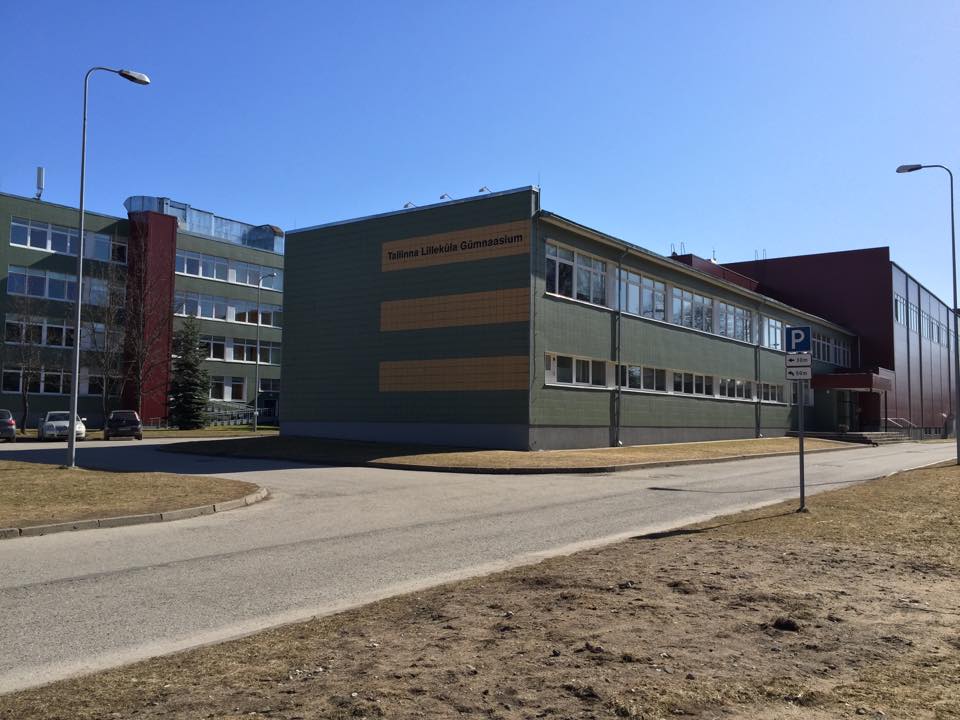
6 April 2022 – What role does art serve in times of war and suffering?
Estonian and expatriate artists share their views on the importance of art in times of crisis along with works that speak to trauma, suffering, hope and empathy.
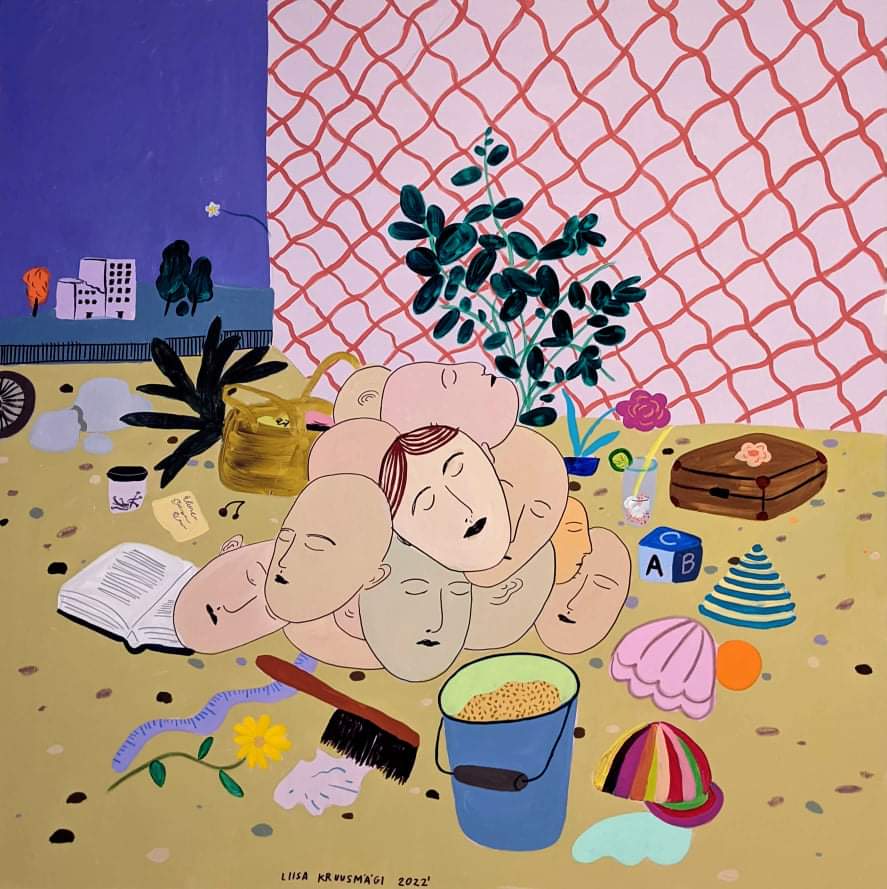
5 April 2022 – Estonia to stop depending on Russian gas by the fall
The Estonian, Latvian and Finnish liquefied natural gas terminal in the town of Paldiski will be finished by the fall of 2022, the economy minister, Taavi Aas, told the Estonian Public Broadcasting; after its completion, Estonia will stop depending on Russian gas. However, already right now, Estonia isn’t using even any Russian gas.
The plan is to build a terminal that has the capability to pump liquefied natural gas from a ship and build the pipelines that would lead the natural gas into the country’s gas network. To that end, the country needs to rent a ship that has the capability of turning liquefied natural gas into regular natural gas.
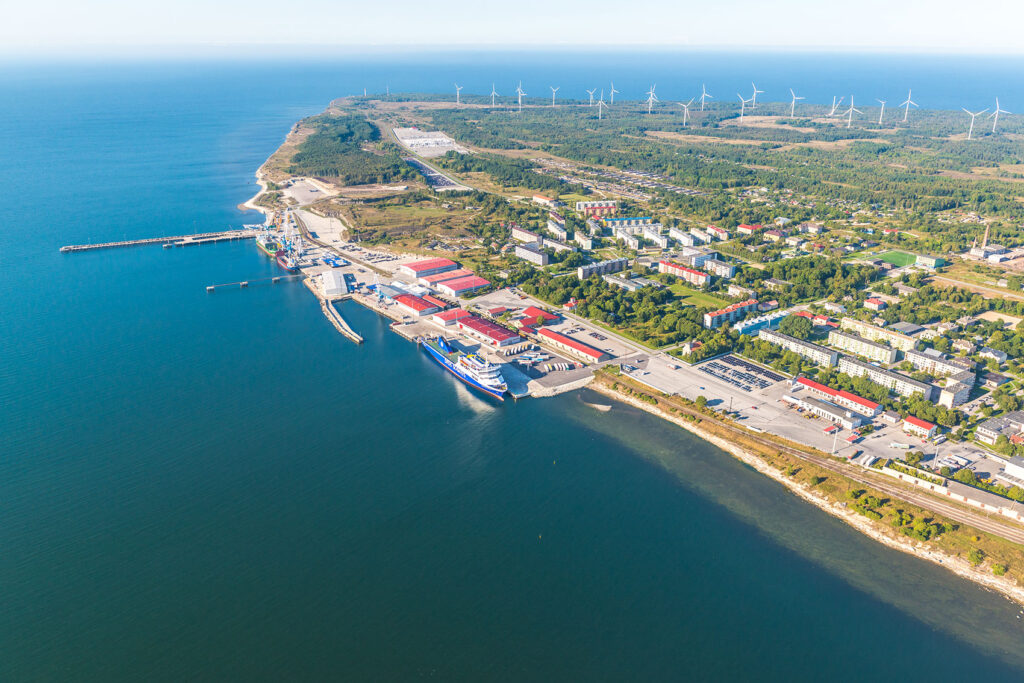
5 April 2022 – Tallinn man arrested for disturbing war refugees
A 54-year-old Tallinn man was arrested for disturbing Ukrainian war refugees. In three different cases, the man hanged outside of a hotel restaurant in the city centre and drew the Russian war propaganda symbol, the letter Z, in the air, and waved at the refugees. The man was sentenced to 10 days detention.
5 April 2022 – The Estonian ambassador to Ukraine to return to Kyiv
The Estonian ambassador to Ukraine, Kaimo Kuusk, is to return to the Ukrainian capital, Kyiv, in the coming days. He left Ukraine on 6 March and continued work in Poland. Now that the Russian forces have left Kyiv Oblast, the Estonian foreign ministry is preparing for his return to the Ukrainian capital.
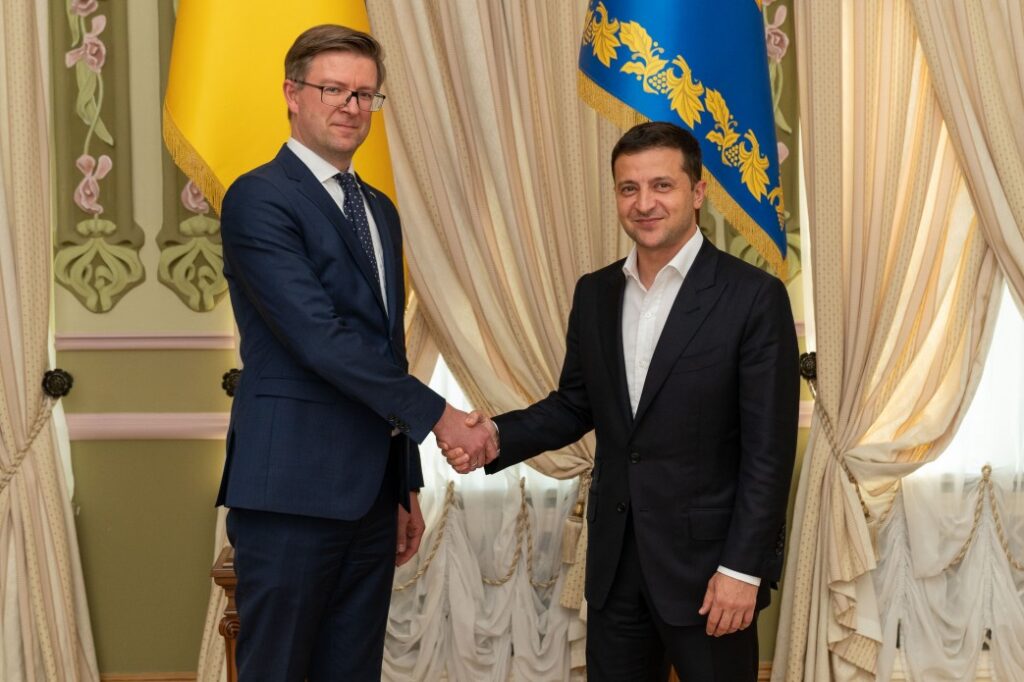
5 April 2022 – Estonia’s military aid to Ukraine has diversified
The military, medical and technical aid to Ukraine that is being arranged in cooperation of Estonia’s Centre for Defence Investment and the Estonian Defence Forces has diversified in the last weeks. By today, Estonia has sent to Ukraine eighty different types of military equipment – ammo, defence equipment and modern military technology, in the amount of over €220 million.
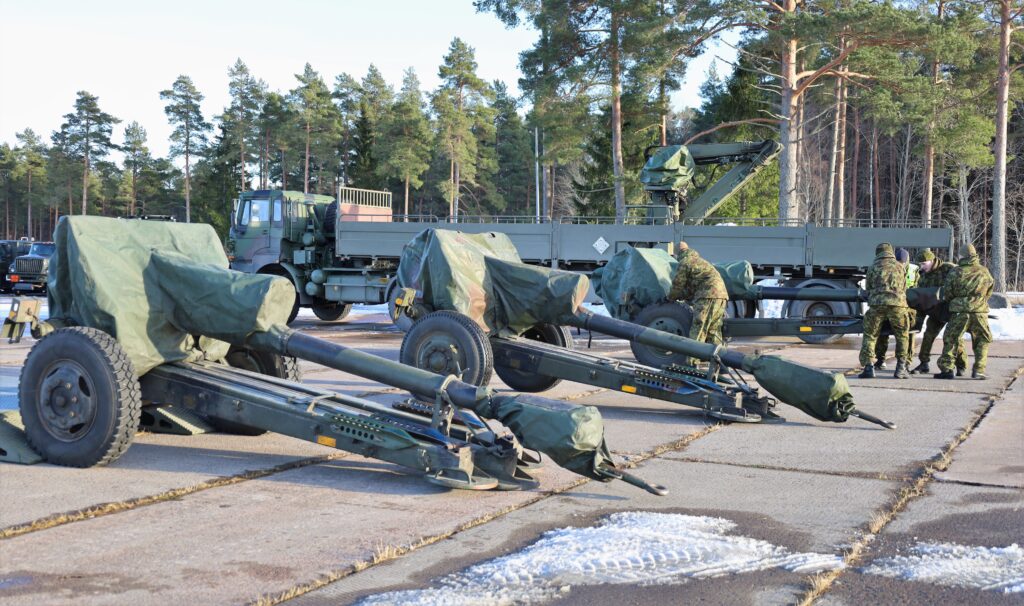
5 April 2022 – Estonia expels 14 Russian consular staff
The Estonian foreign ministry today summoned the Russian ambassador in Estonia, Vladimir Lipaev, to present a diplomatic note on the closure of the consulate general of the Russian Federation in Narva and the consular office of the Russian embassy in Tartu. Estonia also decided to expel and declare as persona non grata 14 of their staff, including seven employees with diplomatic status. The individuals concerned must leave Estonia by 30 April.
5 April 2022 – Trade unions: Ukrainian refugees must be treated equally in the labour market
Following several reports that the Ukrainian war refugees in Estonia are offered up to four times lower salaries than the locals, the Confederation of Estonian Employers, the Confederation of Estonian Trade Unions and the country’s social affairs ministry issued a joint statement in which they call on all employers, trade union members and other workers to treat war refugees in a “humane manner”.
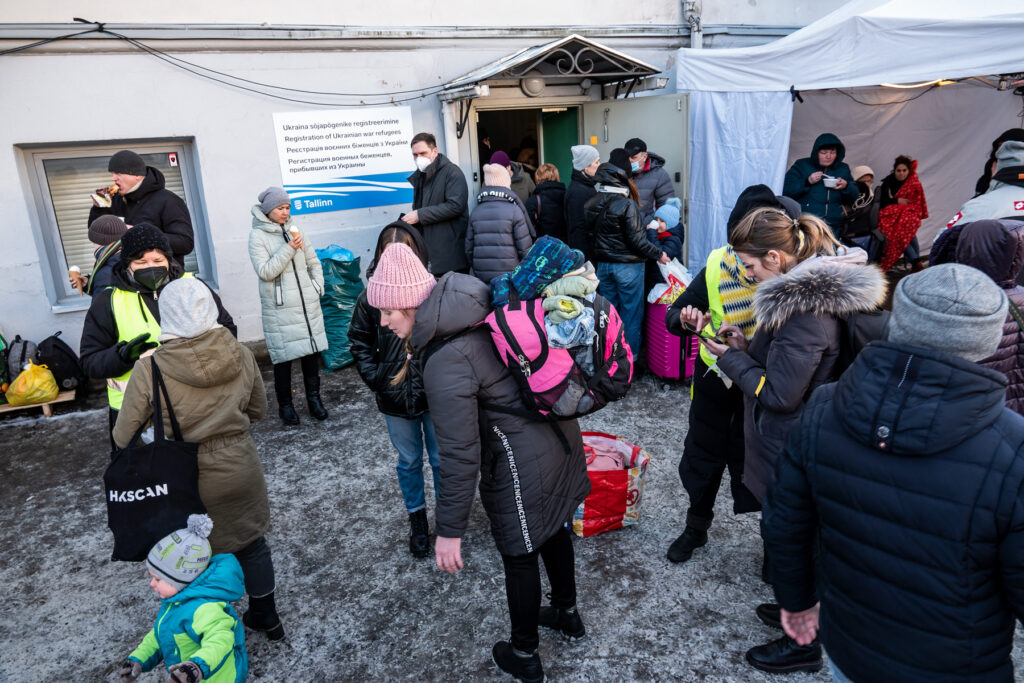
5 April 2022 – Former Estonian president calls to expel the Russian embassy
Toomas Hendrik Ilves, a former Estonian president, called to expel the Russian embassy in Estonia, following reports of the killing of civilians and locals by Russian armed forces in Bucha, Ukraine. “You are a guest in my country. I want you out. Russian citizens are the ones who need an embassy. We don’t,” Ilves wrote on Twitter.
Lithuania has expelled the Russian ambassador in Vilnius, but the Estonian government has so far not taken this route, merely summoning the Russian ambassador in Tallinn, Vladimir Lipaev.
Marina Kaljurand, an Estonian MEP and a former foreign minister, also called to expel the Russian ambassador. “The Russian ambassador is a representative and propagandist of the criminal Russian government. The Russian embassy is spreading misinformation and mocking the Estonian prime minister. The Russian ambassador should be expelled from Estonia as a matter of urgency and the Estonian ambassador [in Moscow] should be called home,” Kaljurand wrote on her official Facebook page.

4 April 2022 – Estonia’s foreign ministry summons Russian ambassador
Estonia today summoned Vladimir Lipaev, the Russian ambassador in Estonia, to “condemn in the strongest terms” the killing of civilians and locals by Russian armed forces in Bucha, Ukraine. The ministry said in a statement that these “horrendous acts of violence constituted complete disregard for not only international law but also the basic principles of humanity”.
“Estonia continues to monitor events in Ukraine closely and helps document and investigate the evidence collected to make sure war criminals are held accountable for the crimes they have committed,” the ministry added in a statement.
4 April 2022 – A Tallink ferry to be used to accommodate Ukrainian refugees
Tallink Group, an Estonian shipping company, and the Estonian Social Insurance Board signed a four-month contract for the accommodation of Ukrainian war refugees on board the ship “Isabelle”, starting from 7 April. The ship can accommodate around 2,100 people and will be moored at the Port of Tallinn. Estonia has accepted almost 27,000 Ukrainian refugees since 27 February and almost 6,000 of them are staying in a temporary accommodation.
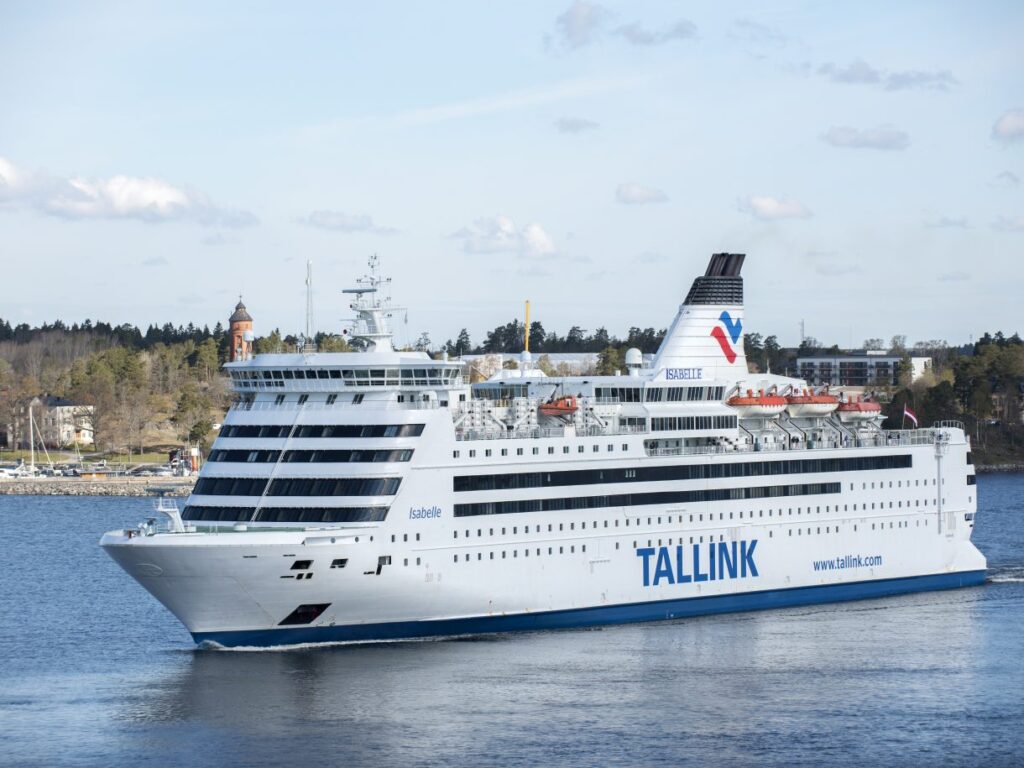
4 April 2022 – Tallinn City Government collects donations for war refugees
To support the Ukrainian refugees who have arrived in Tallinn, the city government is organising a collection of everyday items in the district administrations.
4 April 2022 – The Estonian National Male Choir performs the “Prayer for Ukraine”
Since the outbreak of the Russian invasion of Ukraine, the Estonian National Male Choir has at its concerts performed the “Prayer for Ukraine” by Ukrainian composer Mykola Lysenko. The piece is based on a poem by Oleksandr Konysky, a Ukrainian poet. Over the past month, it has been performed as a statement of support for Ukraine by a number of choirs across Europe.
4 April 2022 – Almost 7,000 people want to ban Russian popstar’s concert in Tallinn
A petition with an aim to ban a concert by the Russian pop star, Philipp Kirkorov, in Tallinn, was handed over to the Tallinn City Government. Over 6,600 people signed the petition that called to ban the concert, due to take place in May in Tallinn. Kirkorov is a known supporter of Vladimir Putin and the annexation of Crimea.
The petition was handed over to the city government because it owns the concert venue in Tallinn’s predominantly Russian-speaking Lasnamäe district.

4 April 2022 – Tallinn University offers tuition free studies for Ukrainian students for the next academic year
Tallinn University is to provide tuition free studies for the next academic year for all Ukrainian students who start their studies at the university from September 2022.
1 April 2022 – Baltic and French foreign ministers give a joint press conference in Tallinn
The Estonian, Lithuanian, Latvian and French foreign ministers – Eva-Maria Liimets, Gabrielius Landsbergis, Edgars Rinkēvičs and Jean-Yves Le Drian, respectively, give a joint press conference at the Estonian foreign ministry at 1:30pm Estonian time.
1 April 2022 – Estonian foreign minister Liimets to her French colleague: Russia must compensate war damages to Ukraine
The Estonian foreign minister, Eva-Maria Liimets, met with her French counterpart, Jean-Yves Le Drian, in Tallinn today. Liimets said that in addition to offering Ukraine political support, “we must also consider how Russia will compensate the enormous destruction and civilian damages it has caused in the coming years”. “Speaking to my French colleague, I raised the option of using Russian assets already frozen for compensation and redirecting parts of the payments made to Russia for fossil fuels for the same purpose.”
Liimets also noted in a statement that Russia’s membership in the UN Human Rights Council should be suspended because “its actions go against the principles of the council”.
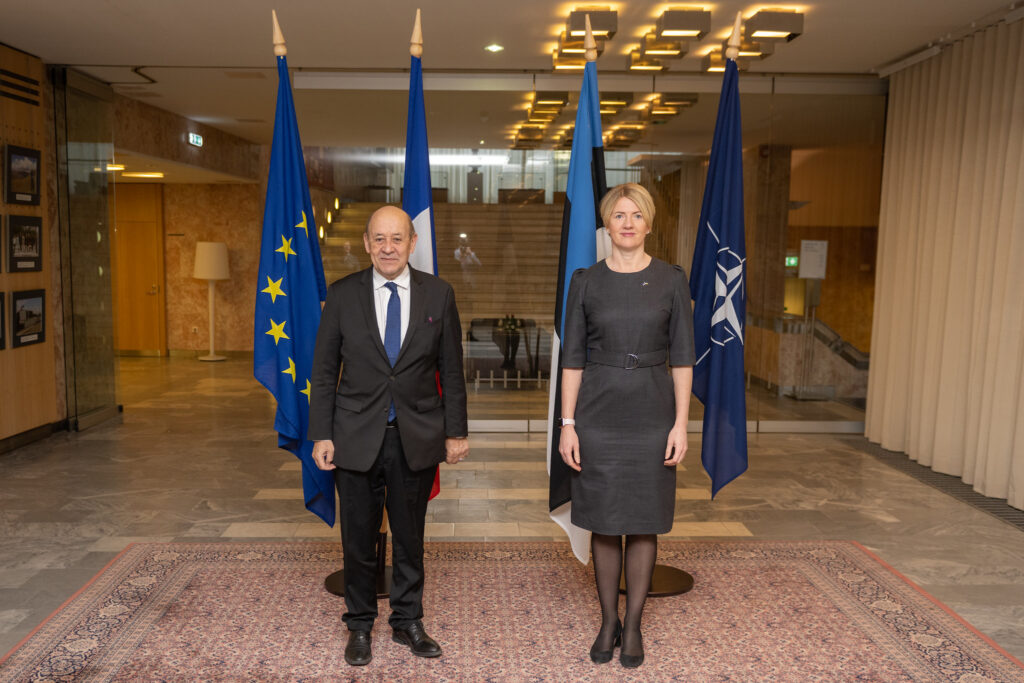
1 April 2022 – Former Finnish president again pisses off Estonians
The former president of Finland, Tarja Halonen, gave an interview to the Finnish Public Broadcasting that didn’t go over well with Estonians. Halonen said in the interview that her country didn’t join NATO in 2004 when Estonia, Latvia, Lithuania and other Eastern European states did because the Finnish position was they didn’t want it. She also said that the Baltic countries joined NATO because “during the Soviet times, they were used to collective defence”.
“Our stance was – and not just mine, but our and the Finns’ stance that we won’t join,” she said. She added that the Baltic countries were in a different position – the small countries had been a part of the Soviet Union and, according to Halonen, they had difficulties building a believable defence for their countries.
Halonen has offended the Estonians before when calling the entire Estonian nation suffering from a “post-Soviet traumatic stress” disorder.
The former president of Estonia, Toomas Hendrik Ilves, reflected on the current interview and the comment on the “post-Soviet traumatic stress” disorder by saing that “Yeah, that traumatic stress all Estonians suffer from, to quote that eminent psychoanalyst-diplomat-security policy analyst, Dr. Halonen. 🤣”
Katri Raik, the director of the Estonian Foreign Policy Institute, tweeted in Finnish that it’s sad that the Soviet understanding about Estonia has again risen to the surface in Finland. “The Soviet Union wasn’t a security arrangement for Estonia, it was a prison,” she said.
The Finnish Estonian author, Sofi Oksanen, also took it to Twitter to respond Halonen’s statement. “WTF? This wasn’t a security arrangement. This was an occupation.”
Later on, Halonen apologised for her comments, also on Twitter.
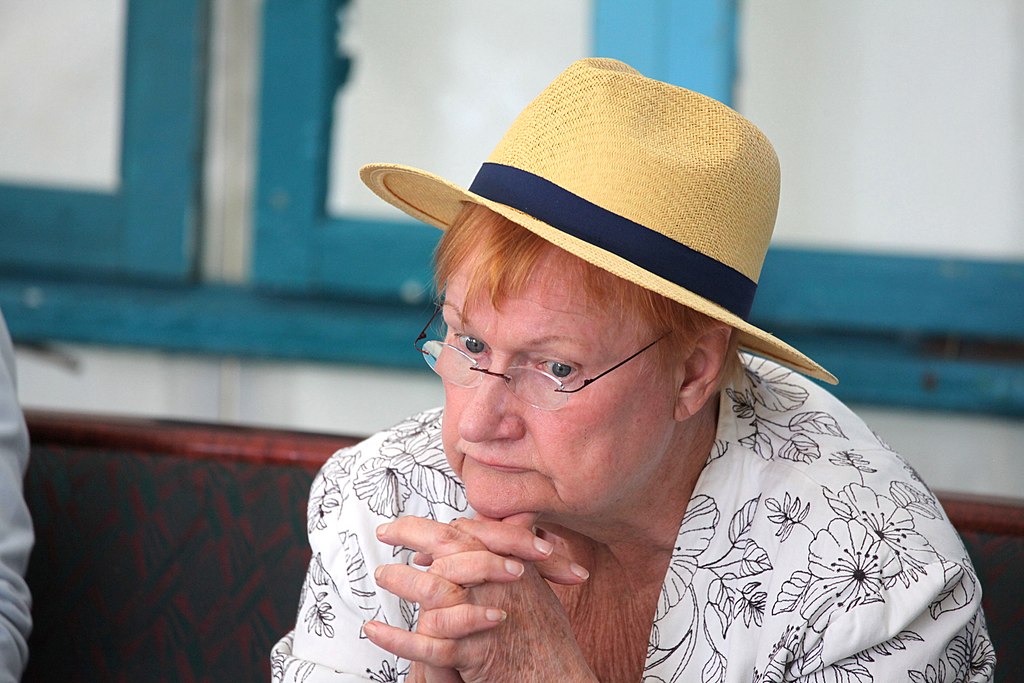
1 April 2022 – A window bearing a Ukrainian flag smashed in Tallinn
In the early morning of 31 March, an unknown person threw a rock into a window in Mustamäe, one of Tallinn’s dormitory areas, where a large Ukrainian flag was displayed. The incident occurred in the dead of night, according to Delfi, and it could’ve hurt the people living in the apartment.
“I live in a place where there’s lots of Russians, I’m not surprised that it happened,” Sander, a tenant at the apartment, told the news portal. “I put the flag up on the fourth day of the war and I was ready for it, but I hoped it wouldn’t happen.” A police report of the incident has been filed.
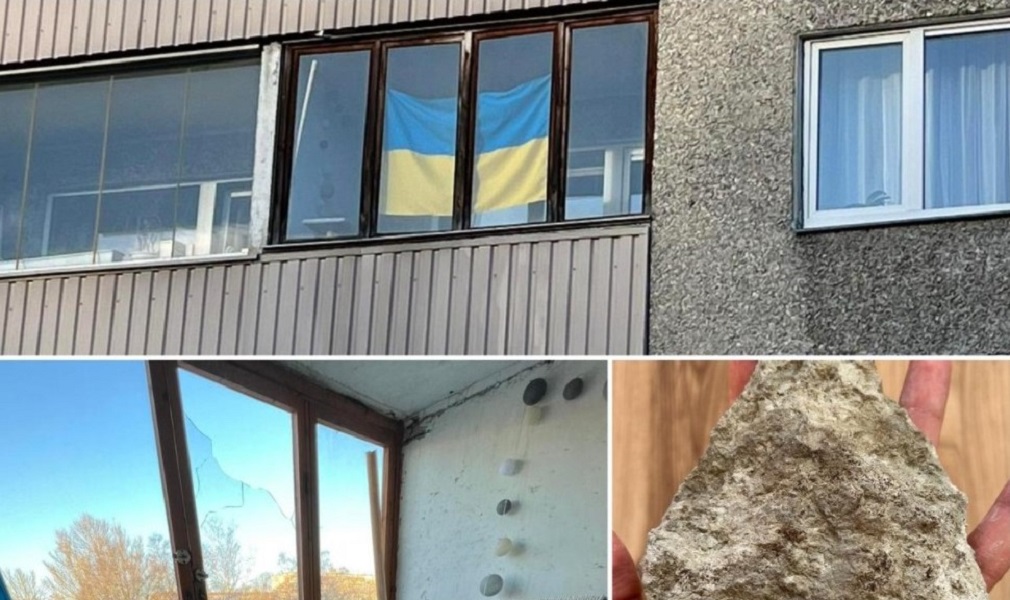
1 April 2022 – Estonia bans Russian taxi company Yandex
The Estonian government has banned Russian taxi company Yandex from operating in the country. According to the Estonian prime minister, Kaja Kallas, the ban is necessary to defend the Estonian security. “Banning Yandex will send a clear signal that companies that cooperate with Russian intelligence services don’t have a place in Estonia. We’ve also suggested the European Union to sanction Yandex,” she said.
The decision to ban the taxi company came after the Russian government decided that Yandex had to share the personal data it collects with the Russian intelligence services. “The purpose of the sanction is to prevent the collection of the data of Estonian clients and abuse of the data by the Russian intelligence services,” Andres Sutt, the Estonian IT minister, added. The ban will take effect on 11 April.
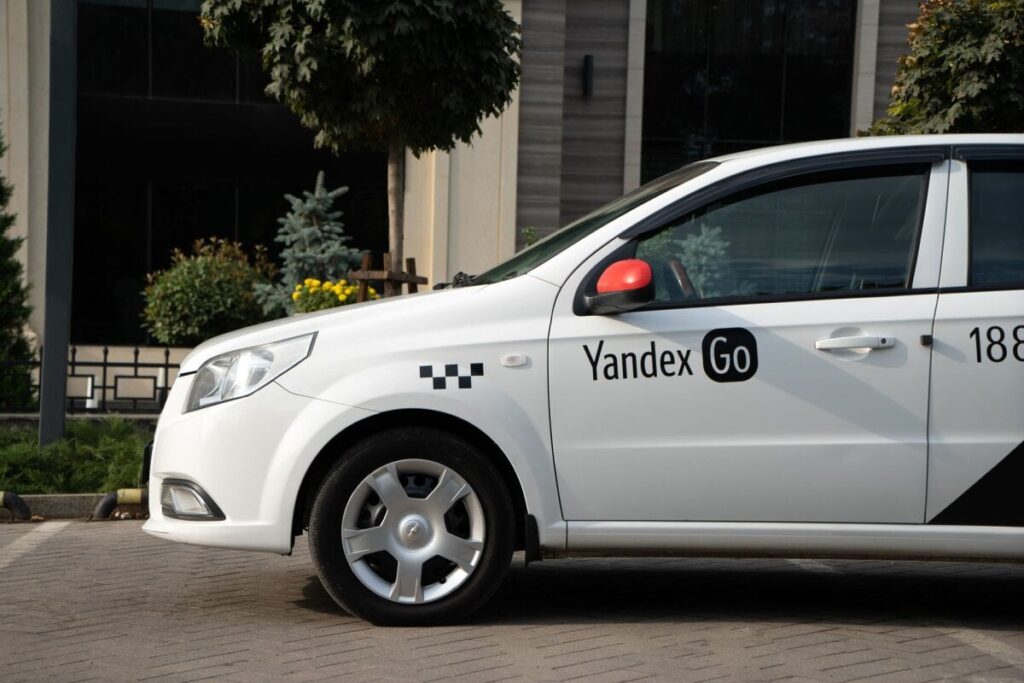
1 April 2022 – Estonian MP: Ukraine is the bravest nation in the world
The Estonian MP, Urmas Reinsalu, who has also served as the country’s foreign and defence minister, said in an interview with Rubryka, a Ukrainian outlet, that Ukraine was the bravest nation in the world. “The situation is very dramatic and very heroic,” he said in the interview. “I believe the Ukrainian people are the bravest nation in the world, not only the soldiers but also the local communities and people who help deliver public services. In Ovruch, I saw a bakery factory continuously making bread for the region under the air-raid sirens. There are many cases of heroism I saw in Ukraine. That gave me a complete understanding that Ukrainian people will never give up,” Reinsalu said.
“The battles in Ukraine are battles where Ukrainians are fighting for the freedom of our civilisation. The Ukrainian war is the Estonian war, and all the European countries’ war. And European leaders need to understand it fully. There is still a certain cautiousness in establishing a total trade embargo against Russia. I think it would be most efficient if the EU and US and like-minded countries such as the UK passed the package of a total trade embargo. Something that the US has efficiently created over Cuba.”
The media outlet also points out that Estonia is one of Ukraine’s biggest supporters in Europe. “The Estonian parliament was the first to call on UN member states to close the sky over Ukraine. The Estonian government was one of the first to support Ukraine in granting EU candidate status. From the first days of the war, the Estonian society united as never before. Eg, on February 26, the largest rally in 30 years took place on Freedom Square in the Estonian capital. More than 30,000 people came out in support of Ukraine. It is around 2% of the entire population of Estonia,” the outlet says.
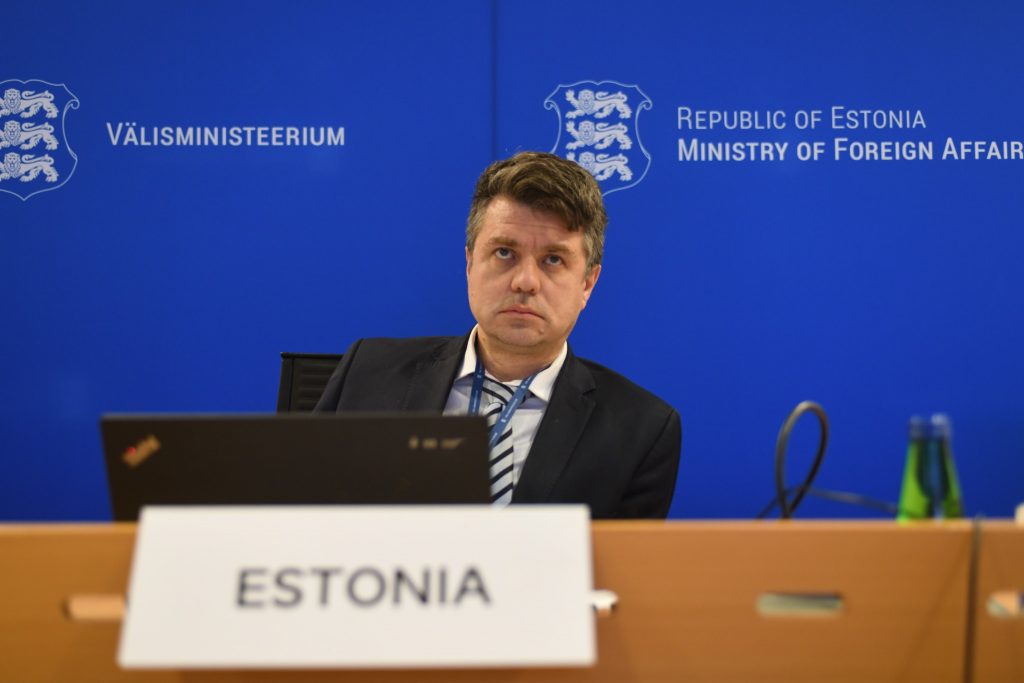
For March updates, please click on page 2 below the social icons.
For February updates, please click on page 3 below the social icons.

